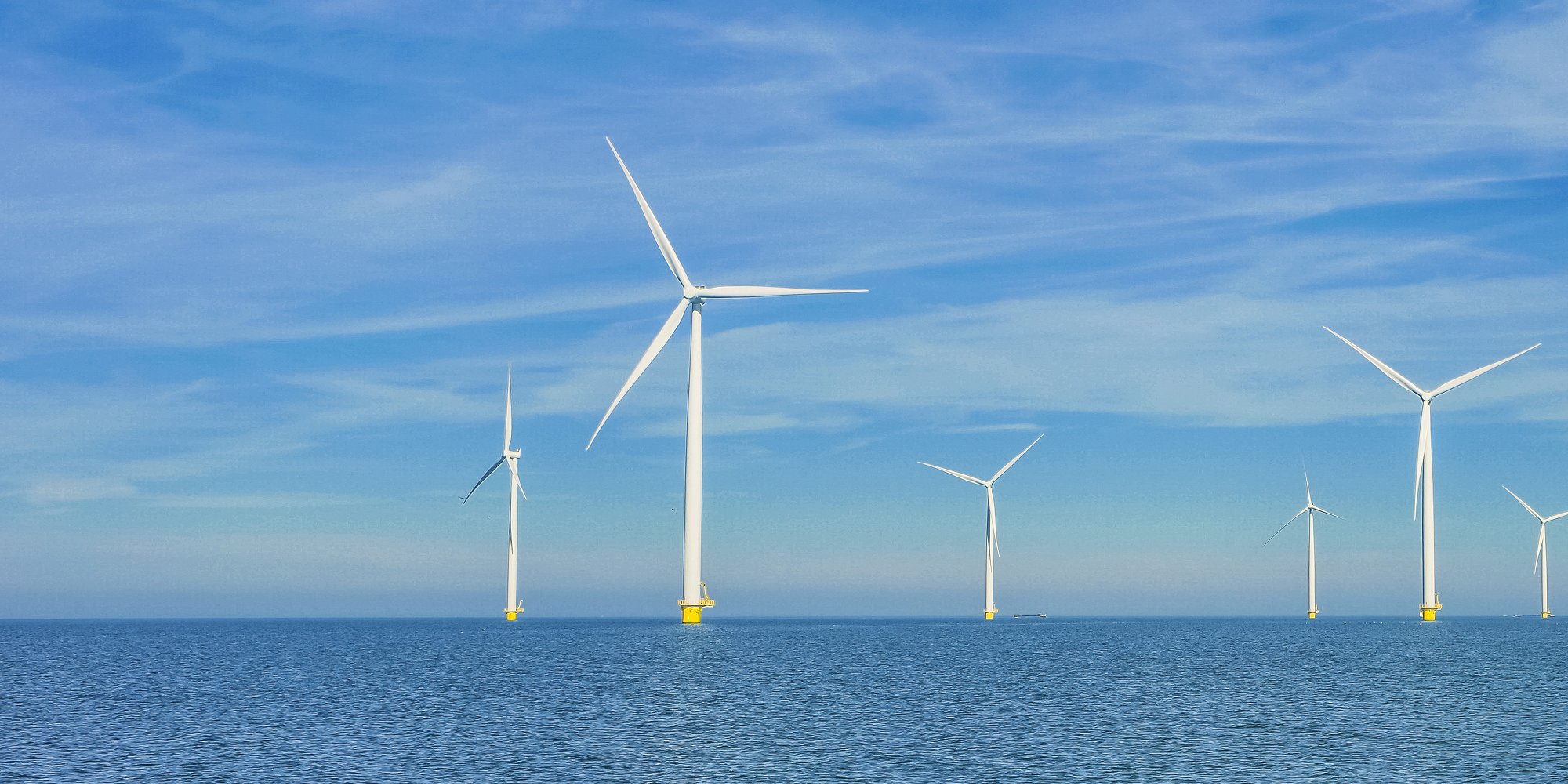Perspectives on the Climate Change Challenge
Spring Semester 2026
Most Mondays, 2:55-4:10 p.m.
155 Olin Hall | Zoom
This university-wide seminar provides important views on the critical issue of climate change, drawing from many perspectives and disciplines. Experts from Cornell University and beyond present an overview of the science of climate change and climate change models, the implications for agriculture, ecosystems, and food systems, and provide important economic, ethical, and policy insights on the issue. The seminar is being organized and sponsored by the Department of Biological and Environmental Engineering and the Cornell Atkinson Center for Sustainability.
February 9: Frontiers for Sustainably Securing Energy Critical Elements
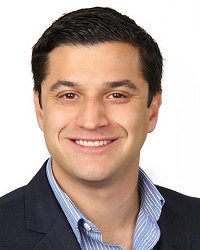
Esteban Gazel (Cornell University, Earth and Atmospheric Science)
Abstract: The “green energy transition” and initiatives to expand domestic supply chains are placing an unprecedented demand on critical elements. While recycling technologies are promising, even with the best possible recovery efficiency, recycling itself will not fulfill the demand. Therefore, the only option is to harvest these elements from mineral deposits, but current extraction methods can leave considerable amounts of toxic waste and focus on high-concentration elements of economic value, leaving many other elements behind. Securing critical elements has become the “Apollo” challenge of our time, a challenge that only can be solved with innovation. Synthetic biology, in combination with mineralogy and geochemistry, provides a new frontier for critical elements innovation. My lab, in collaboration with Buz Barstow’s lab (Cornell, CEE), developed an interdisciplinary project to engineer microbes capable of extracting rare earth elements (needed for wind turbines, batteries, alloys, etc.) from phosphate minerals and separating them with selectivity under more favorable environmental conditions than the ones currently used. We are now focusing on harvesting nickel and cobalt (critical for batteries) while simultaneously sequestering carbon from atmosphere from ultramafic rocks. Our data suggest that for olivine dissolution, direct interaction with engineered microbes significantly increased reactions rates compared to inorganic or organic acids. Last year, with the support of the National Science Foundation, we launched a Global Center to build an Atlas for Microbe-Mineral Interactions, focusing on the discovery of fundamental processes needed for the development of sustainable biomining solutions.
Bio: Geology is the passion of Gazel’s life. Since his childhood, earthquakes and volcanoes have motivated his curiosity to understand the secrets of the planet. His team studies processes in our planet’s interior that produce magmas, volcanoes, and contribute to planetary evolution. Population growth, the risk of natural hazards, climate change, and the need for new suitable energy solutions increase the need for highly trained Earth scientists. His mission is to contribute to the education of the next generations and bring solutions to these challenges.
February 23: Food: The Ultimate Climate Change Messenger
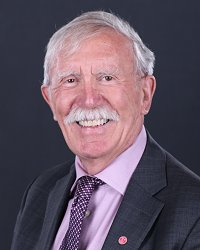
Michael Hoffmann (Cornell University, Entomology)
Abstract: Food is essential for life, it is emotive, and it is imbedded in our cultures and family histories. However, climate change is changing everything on the menu giving us unlimited stories to tell and make climate change relevant to everyone. We all eat! The common ground of food even crosses the political divide. Regardless of political affiliation most people are concerned about climate change impacts on their food, and they are interested in learning more—an audience awaits. Food is the ultimate climate change messenger. This is not another doom and gloom story but one focused on a solution. Everyone can tap the power of food to confront climate change and keep our favorites on the menu. And coincidentally, help keep the planet livable.
Bio: Mike Hoffmann transitioned to Professor Emeritus in January 2020 after 30 years in the Department of Entomology. He maintained an active research and extension program in the department focused on integrated pest management and biological control, despite holding an 80% appointment in leadership/administration roles in the College of Agriculture and Life Sciences from 1999 to 2020. Addressing the greatest challenge of our time — climate change — has been his focus for many years. Despite being an Emeritus Professor, he is not retired. He now dedicates all his time to this grand challenge and often helps people understand and appreciate what is happening through food. He tells the climate change story with passion, a little humor, and without doom and gloom. It’s a science-based message about what is happening and what we all can do about it. His TEDx, Climate change: It’s time to raise our voices has been well received. He is also the lead author of Our changing menu: Climate change and the foods we love and need (Cornell University Press 2021) and associated website – Our changing menu.
March 2: What (and Who) Counts? The Science, Law, and Policy of Greenhouse Gas Accounting
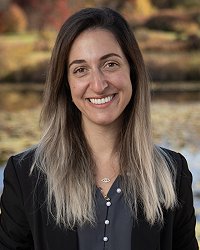
Leehi Yona (Cornell University, Law School)
Abstract: Greenhouse gas (GHG) accounting forms the basis of many climate policies. Responsible actors such as governments and corporations rely on GHG accounting—the practice of quantifying and reporting GHG emissions—to produce the emissions inventories that both inform and substantiate their efforts to mitigate climate change. For example, the United Nations Paris Agreement relies on countries’ national GHG inventories to determine the progress they are making toward their climate pledges. And yet, our world is filled with “unaccounted-for” GHGs: emissions that are both measurable and caused by human activity but that are excluded from these institutional inventories. These emissions omissions may have profound consequences for the success of climate mitigation, because progress toward emissions reduction pledges can only be ascertained against GHG inventory trends. The wider the shortfall between institutionally accounted-for and scientifically estimated GHG emissions, the less effective climate policies will be. This lecture will explore how GHG emissions science does (or does not) get incorporated into law and policy—and how that may impact both people and climate progress.
Bio: Leehi Yona is the Gearns & Russo Faculty Fellow of Environmental Law and Assistant Professor of Law at Cornell Law School, specializing in environmental and climate change law. Her research focuses on legal frameworks for greenhouse gas accounting, climate justice, and regulatory strategies for transformative environmental governance. Professor Yona’s research examines interdisciplinary approaches to greenhouse gas accounting, addressing the challenges and gaps in current climate laws and policies and exploring ways to improve them. Her research has been published in leading journals such as the Harvard Environmental Law Review, Ecology Law Quarterly, Nature, Nature Sustainability, and the Journal of Environmental Science and Policy.
March 9: Climate Fiction and Climate Reality: Writing a Changing World

Alexandra Kleeman (Cornell University, Literatures in English)
Abstract: The term “cli-fi” — short for “climate fiction,” and referring today to fiction that depicts a changed or changing climate — has been in use since at least 2008, but as the perception of climate change has shifted from being a problem of the future to one unfolding with immediacy and urgency in our own local contexts, the genre has shifted from a mode of science fiction to a more heterogeneous and unpredictable. Recent works of climate fiction are both closer in resemblance to the world of our everyday lives, and more varied in the way in which they depict the difficulties of adapting to environmental shifts. I will discuss these trends in relation to my own climate novel, Something New Under the Sun, as we think through the stakes of writing fiction about climate change and the opportunities it may offer.
Bio: Alexandra Kleeman is the author of the novel Something New Under the Sun, a New York Times Notable Book of 2021, as well as the short story collection Intimations and the novel You Too Can Have A Body Like Mine. Her work deals in issues related to climate catastrophe, embodiment, and late-capitalist realism. Her novel-in-progress, comprising five novellas set on different islands, traces the rise and fall of systems of monetization and exchange. The recipient of the Rome Prize, Berlin Prize, and Bard Fiction Prize, she was awarded a Guggenheim Fellowship in Fiction in 2022.
Her fiction has been published in The New Yorker, The Paris Review, Zoetrope, Conjunctions, and Guernica, among others, and other writing has appeared in Harper’s, The New York Times Magazine, VOGUE, Tin House, n+1, and The Guardian. She has received fellowships and support from Bread Loaf, MacDowell, Djerassi, the Virginia Center for the Creative Arts, the Headlands Center for the Arts, and the Bergman Estate. A Contributing Writer at the New York Times Magazine, she writes essays and long-form profiles about cultural figures and lives in Ithaca and Colorado.
March 16

Zachary Labe (Climate Central)
Bio: Zachary Labe is a Climate Scientist at Climate Central. His research interests explore the intersection of climate risk, climate impacts, future scenarios, extreme events, early warning predictions, and data science methods like AI/ML. In addition to this work, he is very passionate about improving science communication through accessible data visualizations.
Prior to his time at Climate Central, he was a Research Physical Scientist (federal) at NOAA Geophysical Fluid Dynamics Laboratory. He earned his Ph.D. in 2020 from the Department of Earth System Science at the University of California, Irvine, where he explored the links between Arctic climate change – particularly sea ice loss – and its influence on the large-scale atmospheric circulation and extreme weather.
March 23: Can Climate Change Influence the Risk of Another Pandemic?
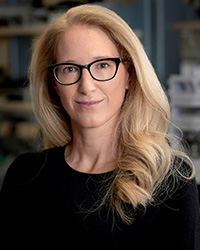
Raina Plowright (Cornell University, Public & Ecosystem Health)
Abstract: Pandemics begin after a pathogen that has the capacity for sustained human-to-human transmission spills over from a non-human animal into people. Spillover is the outcome of a cascade of ecological, epidemiological, biological, and sociological processes. Climate change has the potential to exacerbate and align each of these processes in ways that increase the risk of spillover. I will outline the key factors linking climate change and zoonotic spillover and will invite discussion on how these insights could inform upstream pandemic prevention.
Bio: Raina Plowright is the Rudolf J. and Katharine L. Steffen Professor at Cornell University and a Cornell Atkinson Scholar at the Cornell Atkinson Center for Sustainability. A veterinarian with an M.S. in epidemiology and a Ph.D. in ecology from UC Davis, her research focuses on understanding the mechanisms of zoonotic spillover to inform strategies for pandemic prevention. Plowright leads transdisciplinary collaborations on emerging infectious diseases, particularly WHO-priority pathogens originating in bats. Her work spans sub-cellular to landscape-scales, revealing how land-use change and climate variation drive pathogen emergence—and identifying practical strategies for prevention. She co-chairs the Lancet Commission on Prevention of Viral Spillover and serves on advisory boards, including the NSF Advisory Committee for Environmental Research and Education. Plowright is an elected member of the National Academy of Medicine (2023) and the American Association for the Advancement of Science (2022).
April 6: Emotions on Our Screens: Evaluating Emotions About Climate Change Online
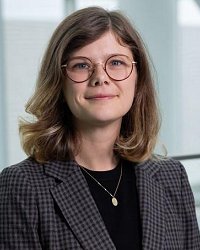
Talbot Andrews (Cornell University, Government)
Absract: People feel increasingly emotional about climate change: As of 2023, 66% of Americans are at least “somewhat” worried about climate change, and 55% believe they’ve already experienced some of the negative effects of climate change. But emotions aren’t only felt, they are expressed. Changes in the media environment have given people unprecedented access to the expressed emotions of others. Through both contemporary news stories and social media, people now learn how others – often strangers – feel about climate change. Do people believe in the sincerity of these expressed emotions? The answer depends on the context. This includes both the context that caused the emotion (e.g., was the person expressing their emotions themselves harmed by climate change?) as well as the context through which the emotion is encountered (e.g., was this a TikTok the expressor filmed and shared themselves, or a quote in a news article). Emotional expression can serve an important role, helping people find the community of others who also care about the issue. And, even if it doesn’t achieve any instrumental goal, expressing emotions makes people feel better. The takeaway then is not that people should keep their feelings to themselves, but instead that such expression won’t always be taken at face value.
Bio: Talbot M. Andrews is an Assistant Professor in the Department of Government. She studies how policy design and the changing environment interact with individuals’ attitudes to shape their behavior related to environmental policy. She is also more broadly interested in the public’s ability to hold their elected officials accountable. While most of her work is based in the United States, she also works with a team studying climate change literacy across Africa. Her book, Climate Games: Experiments on How People Prevent Disaster uses lab experiments to examine how the strategic features of climate change help and hinder successful disaster prevention. Prior to joining Cornell, she was an Assistant Professor at the University of Connecticut (2021-2024), and a postdoctoral research fellow in the Center for the Study of Democratic Politics at Princeton University (2020-2021). She completed her PhD in political Science at Stony Brook University in 2020.
April 13
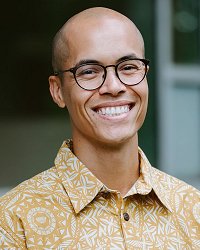
Steven Mana‘oakamai Johnson (Cornell University, Natural Resources and the Environment)
Bio: Dr. Steven Mana‘oakamai Johnson (he/him/‘oia) is a Kanaka Maoli (Native Hawaiian) human-environment geographer, born and raised on the island of Saipan, located in Micronesia. His research questions are informed by his heritage and upbringing, focusing on the impacts that conservation and climate change have on coastal communities, primarily in the Pacific Islands. He uses social, environmental, and climate data to develop equitable and cooperative solutions for coastal communities. This work is a direct practice of his kuleana (responsibility) to use his knowledge and skills to improve the social and environmental spaces he is a part of.
April 20
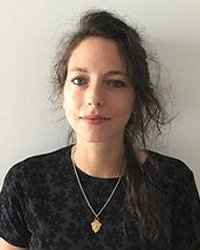
Sara Constantino (Stanford University, Doerr School of Sustainabilty)
Bio: Sara Constantino is an assistant professor at the Stanford Doerr School of Sustainability in the Department of Environmental Social Sciences and a visiting research scholar at Princeton’s School of Public and International Affairs. She is also a faculty affiliate at SPARQ and the Social Science Environmental Health Research Institute. She has an interdisciplinary background at the intersection of economics, psychology, and environmental policy and politics. Her research focuses on understanding the interplay between individual, collective, institutional, and ecological factors, including how they shape preferences, decisions, experiences, and resilience to extreme events or shocks. In recent and ongoing studies, she is looking at the role of polarization, social norm,s and governance in stimulating or stifling climate action, including both adaptation and mitigation, and what conditions lead groups mobilize to shape policy and other outcomes. She also works on the impacts and politics of guaranteed income and other cash transfer programs.
April 27: Accelerating Climate Science With Machine Learning: Earth System Emulation
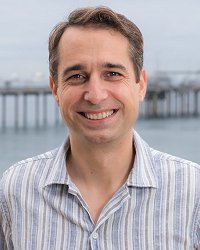
Duncan Watson-Parris (UC San Diego, Scripps Institution of Oceanography)
Abstract: Uncertainties in estimating Earth’s future climate stem from both inaccuracies in our models and the vast array of possible choices that society will make in the intervening years. One of the most pressing uncertainties in climate modelling is that of the effect of anthropogenic aerosols, particularly through their interactions with clouds. Here, I will introduce a general earth system emulation framework which leverages advances in machine learning and describe its application to the emulation of entire climate models for the reduction of this uncertainty. I will also demonstrate how such emulation can be used to better approximate the climate response to different pollutants, in their detection and attribution, and in the exploration of different future emissions pathways.
Bio: Duncan Watson-Parris leads the Climate Analytics Lab (CAL) at UC San Diego, which investigates how aerosols interact with clouds and how these processes are represented in global climate models. This work combines theory, observations, and machine learning to better constrain and improve these models. CAL develops AI-based methods to integrate diverse satellite and aircraft observations and reduce uncertainty in aerosol–cloud interactions. He also led the GAIA Initiative at UCSD, and co-convened the “AI and Climate Science” discovery series focused on advancing the use of artificial intelligence for Earth and ocean science more broadly. His research is supported by an NSF CAREER award, a Google Academic Research Award, and DARPA.
May 4
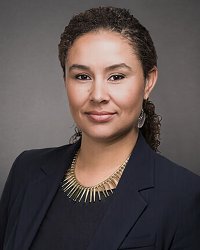
April Salas (EFI Foundation, Chief Operating Officer)
Bio: April Salas brings over 20 years of management and board experience in global and domestic capital markets, with expertise in energy, sustainability, and climate. Before joining EFIF, Salas served as the global director of public policy at Microsoft’s Environmental Sustainability team, where she developed and advanced key global policy and legislative initiatives across the company’s global sustainability commitments of responsible sourcing, zero waste, and becoming water positive and carbon negative by 2030. At Microsoft, she led public policy strategy on AI’s role in advancing a low-carbon energy transition; carbon reduction across the supply chain, including semiconductors, steel, and cement; and advancing access to zero-carbon power, including advanced nuclear. Salas has coauthored Microsoft’s Accelerating Sustainability with AI: A Playbook, engaged policymakers globally, and was a technical reviewer for the United Nations Framework Convention on Climate Change and the International Energy Agency.
February 10: Empowering Vulnerable Communities Facing the Consequences of Climate (Action)
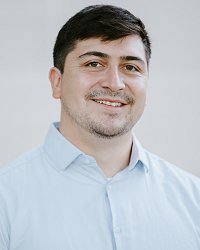
Michael Charles (Cornell University, Biological & Environmental Engineering)
(video)
Abstract: Climate change poses threats to all life on our planet but the consequences do not impact all communities equally. With the complexity of the technological, political, and economic systems that humankind has built around ourselves, our solutions to address climate change also redistribute risks disproportionately. In this seminar, we will dive into the trade-offs that must be considered to make “sustainable” decisions and how information can be used to advocate for the safety and growth of vulnerable communities. Particularly, we will talk about the role Indigenous communities can play in the transition towards renewable energy, food sovereignty, and just research governance.
Bio: Michael Charles (he/him/his) is an Assistant Professor in the Department of Biological and Environmental Engineering at Cornell University, an Affiliate Faculty of the American Indian and Indigenous Studies Program, and a Faculty Fellow of the Cornell Atkinson Center for Sustainability. His expertise involves developing computational sustainability frameworks that include dynamic ecological models and telling data-driven stories that advocate for underrepresented communities. As a Diné (Navajo) scholar, he’s dedicated to forming mutually respectful partnerships with Indigenous communities. His vision is to combine computational methods with community-centered relationships to translate his research into action. At Cornell University, the Charles Research Group is particularly interested in the vital role that landscapes can play in addressing complex sustainability challenges and how ecosystem services promote well-being to the human population.
February 24: Carbon Capture Beyond Amines: From Hydroxide-Based Materials to Light-Driven Capture With Photoenols
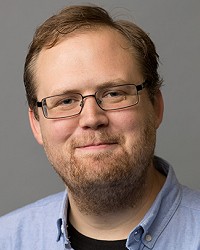
Phillip Milner (Cornell University, Chemistry & Chemical Biology)
(video)
Abstract: Carbon capture from industrial emission streams and from air will be needed to reach climate targets over the next century. The current leading approach to carbon capture employs amine-based scrubbers, either as aqueous solutions or amine-functionalized porous solids. The poor oxidative and thermal stability of amines coupled with their large energy footprints contribute to the high costs of carbon capture using these scrubbers. Herein, we will discuss alternative approaches to carbon capture “beyond amines” developed in our laboratory. These include pivoting towards oxygen-based nucleophiles such as hydroxide sites embedded in porous materials as well as tertiary amine N-oxides. We will also discuss how alternative energy inputs such as light can be used to drive carbon capture instead of traditional temperature/pressure swings.
Bio: Prof. Milner is an associate professor of Chemical and Chemical Biology in Cornell A&S at Cornell University. His teaching and research interests lie at the intersection of organic, inorganic, and materials chemistry, with a particular emphasis on reaction mechanisms. The primary goals of his research group include designing new materials and strategies for effecting challenging synthetic transformations, as well as applying the strategies of synthetic and physical organic chemistry to the development of new porous materials with a broad range of potential applications.
March 3: Hurricane Physics and Risk in a Changing Climate

Jonathan Lin (Cornell University, Earth & Atmospheric Sciences)
(video)
Abstract: Understanding how tropical cyclones might respond to global warming is important so that our most vulnerable communities can adapt to changes in tropical-cyclone related hazards. In this talk, I will provide an overview of basic hurricane physics and climatology, and use this to show why we believe hurricanes will intensify with global warming. I will then talk about future projections of hurricane activity, and discuss which aspects of the projections are certain versus uncertain. Finally, I will introduce the sub-field of hurricane risk, and discuss how global warming-induced changes to hurricane risk affect the everyday consumer.
Bio: Jonathan Lin is an assistant professor in the Department of Earth and Atmospheric Sciences in Cornell CALS at Cornell University. His work broadly focuses on tropical meteorology, including tropical cyclones, equatorial waves, the Madden Julian Oscillation, and troposphere-stratosphere coupling. His research has spanned a variety of topics in the tropical atmosphere. For instance, he is particularly interested in tropical cyclones (colloquially known as hurricanes), dynamic weather systems that bring about heavy rain, extreme winds, and flooding to coastal areas. His past work has focused on improving forecasting of hurricanes, understanding their predictability, and projecting how weather hazards associated with hurricanes might change with warming.
March 10: From Individual Behavior to Collective Action: Behavior Change in the Climate Crisis
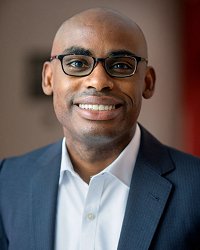
Neil Lewis, Jr. (Cornell University, Communication)
(video)
Abstract: Climate change is fundamentally a collective problem—the issue will affect everyone in some way. Because of this, behavioral scientists have studied a variety of ways to get people from a broad range of backgrounds to engage with the issue of climate change; they have done this in attempts to mitigate (or adapt to) the climate crisis. Some have taken individual-focused approaches that target individual level behavioral changes, others have taken more collective approaches—attempting to mobilize large groups of people. In this talk I will present research on the efficacy of these different strategies, and their implications for interventions and policies to address the climate crisis.
Bio: Neil Lewis, Jr. (he/him) is a Nancy and Peter Meinig Family Investigator in the Life Sciences, and Associate Professor of Communication, Medicine, and Public Policy at Cornell University and Weill Cornell Medicine. His research examines how people’s social contexts and identities influence how they make sense of the world around them, and the implications of those meaning-making processes for their motivation to pursue a variety of goals in life. He is interested in the consequences of those processes not only for individuals, but also for the communities, organizations, and societies in which those individuals are embedded. He is particularly interested in using the insights from research findings to improve educational, health, and environmental outcomes for individuals and societies. Lewis has received the Early Career Scholar Award from the International Communication Association, the Janet Taylor Spence Award for Transformative Early Career Contributions from the Association for Psychological Science, and the National Academies Eric and Wendy Schmidt Award for Excellence in Science Communication from the National Academies of Sciences, Engineering, and Medicine.
March 17: Climate Finance to Decarbonize the Global Power Sector
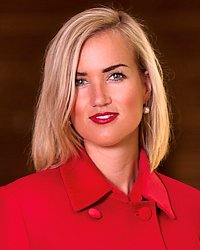
Alissa M. Kleinnijenhuis (Cornell University, Cornell SC Johnson College of Business)
(video)
Abstract: In this paper, we empirically study the climate finance needs required to decarbonize the global power sector. The power sector is the single largest source of CO2 emissions, responsible for 15.1 Gt out of 42 Gt annually, and offers the highest decarbonization potential prior to 2035 (14.7 Gt). We make use of a novel dataset by Forward Analytics giving detailed asset-level information on global power sector plants. We demonstrate a strong economic case for developed countries to provide climate finance to developing countries to replace fossil fuels with renewables. Specifically, $2.8 trillion in public climate finance ($256 billion annually) can leverage $7.7 trillion in private capital ($702 billion annually). The economic return on this investment is between 180% and 1457%, resulting in a net economic benefit of $7.9–43.8 trillion, at a fiscal cost of just 0.5% of developed countries’ annual GDP. Additionally, we evaluate cost-effective strategies for phasing out fossil fuels and scaling up renewables, accounting for land-use constraints. Our findings are highly relevant for countries aiming to design, finance, and implement Paris pledges, such as Nationally Determined Contributions (NDCs).
Bio: Alissa M. Kleinnijenhuis is a visiting assistant professor of finance at the Cornell SC Johnson College of Business and is affiliated with the finance department at the Imperial College Business School of Imperial College London.Kleinnijenhuis actively collaborates with and advises governments, central banks, corporations, think tanks, and international institutions, including the European Central Bank, the Bank of England, the International Monetary Fund, the African Development Bank, and Fidelity Investments. Kleinnijenhuis’ research examines how finance can advance the public good, focusing on leveraging the financial sector for a climate change solution. Her research in her primary area of focus, climate finance, examines how financial incentives can be aligned with limiting climate risks and financing the transition to a carbon-neutral and sustainable economy.
March 24: Assessing U.S. Policy Incentives for Carbon Capture and Storage
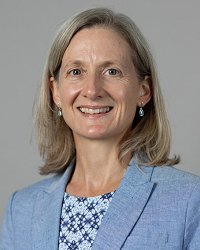
Sheila Olmstead (Cornell University, Brooks School of Public Policy)
(video)
Abstract: Carbon capture, utilization and storage (CCUS) may play a key role in achieving mid-and late-century decarbonization goals globally, it is an important component of the current U.S. strategy for reaching net-zero emissions by 2050, and it provides a key path for power plants to comply with recently finalized U.S. greenhouse gas emission standards. The U.S. federal tax credit for CCUS rose to $85/ton under the Inflation Reduction Act, and models suggest that this will prompt significant deployment of the technology. The economic case for a CCUS subsidy, however, is weaker than for many other decarbonization approaches for several reasons: the need for perpetual funding in order to support deployment and operation, the possibility that it may have counterproductive impacts on CO2 emissions (especially through dynamic effects on the composition of subsidized industries), and the potential for post-combustion CCUS to increase human health damages from local and regional air pollutants. In this seminar, we will talk about these aspects of CCUS from an economic perspective and assess important considerations for designing future CCUS policy incentives.
Bio: Sheila Olmstead is a professor at Cornell Brooks Public Policy, a Cornell Atkinson Scholar, and a Senior Faculty Fellow at Cornell Atkinson. She studies the economic dimensions of environmental policies, especially those related to water quantity and quality. Her research has influenced academic thinking and regulatory policies on topics including climate change and water resource management, the effect of various pricing strategies on water conservation, economics, and water quality considerations around shale gas development, measuring the economic value of improved water quality, and the effect of carbon capture and storage on local air pollution.
April 7: What Is Possible in the Age of Climate Change
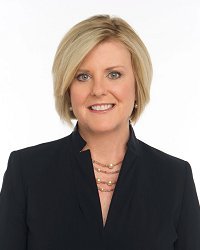
Anne Thompson (NBC News, Chief Environmental Affairs Correspondent)
Bio: Anne Thompson is NBC News’ Chief Environmental Affairs correspondent. Her reports appear across all platforms of NBC News including “NBC Nightly News,” “Today,” MSNBC, and NBCNews.com. She was tapped for this position in April 2007. Most recently, Thompson led coverage on the Gulf oil spill, covering all aspects of the crisis from the beginning to when the well was finally killed. According to the Tyndall Report, this extensive coverage made Thompson the NBC News Correspondent with the most airtime in 2010. She has traveled to Copenhagen to cover climate change negotiations, Greenland, Costa Rica, the Amazon, Australia and Europe to cover such issues as alternative fuels, global warming, land usage, and new technologies.
April 14: All Carrots: Lessons From the Enactment, Implementation, and Defense of the Inflation Reduction Act
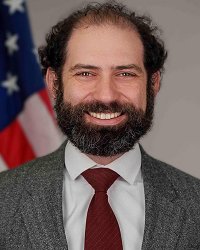
Avi Zevin (Former Special Assistant to President Biden for Clean Energy Implementation)
(video unavailable)
Bio: Avi Zevin recently concluded his service in the Biden Administration, most recently as Special Assistant to the President for Clean Energy Implementation, working with John Podesta and the White House team to advance policies and programs—principally those enacted by the Inflation Reduction Act and Bipartisan Infrastructure Law—that address climate change and facilitate the transition to a carbon-free, reliable, and cost-effective energy system. Avi was a day-one appointee at the United States Department of Energy, as the Principal Deputy General Counsel and Deputy General Counsel for Energy Policy, where he advised the Secretary and Deputy Secretary of Energy and the Department’s senior leadership on legal and policy matters and led all aspects of the Office of General Counsel. Prior to joining the Biden Administration, Avi worked with Google to help the company develop its federal energy policy strategy in order to achieve 24/7 carbon-free energy procurement goals. Prior to that, Avi was a senior attorney and affiliated scholar at the Institute for Policy Integrity at New York University School of Law. Avi started his legal career as an attorney at the law firm Van Ness Feldman LLP. He holds a J.D., magna cum laude, from New York University School of Law, an M.P.A. from the Harvard Kennedy School of Government, and a B.A., with high honors, from the University of California, Berkeley. He lives in Washington, DC with his wife and daughter and plays drums in the DC punk rock band Weird Babies.
April 21: Modeling Weather-Related Catastrophe Risk in a Warming Climate
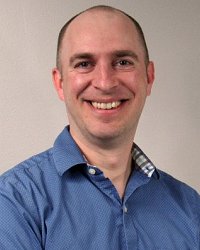
Dan Ward '04 (Karen Clark & Company)
(video)
Abstract: The evolving frequency and severity of events related to extreme weather, like hurricanes, floods, and wildfires, in our warming climate, leads to changes in the risk of property damage which be estimated using catastrophe models. These are numerical models that calculate the intensity of different atmospheric hazards for a large set of hypothetical events, estimate the property damage for each event, and finally compute the resulting financial loss. Catastrophe models that incorporate climate change can help us answer questions about the future risk from weather-related hazards under different time frames and emissions scenarios. Which natural hazards are changing the most and where? What is the cost of something like sea-level rise in terms of future damage from storm surge? How does climate change affect the frequency of the biggest loss events? These and other questions have significant implications for the way the global insurance industry and the rest of us should prepare for catastrophe risk in a warming climate.
Bio: Dan Ward ’04 is a Senior Director on the Model Development team at Karen Clark & Company (KCC), the Boston-based innovation and technology Leader in catastrophe risk modeling. Following his Ph.D. in Atmospheric Science at Colorado State University, he returned to Cornell University as a Postdoctoral Associate to research the role of wildfires and land use in the Earth system. He then moved to Princeton University where he continued studying the impacts of wildfire emissions on climate as an Associate Research Scholar until joining KCC in 2017 as a Senior Meteorologist.
April 28: The Influence of Extreme Weather Events on Farm-Level Decision-Making
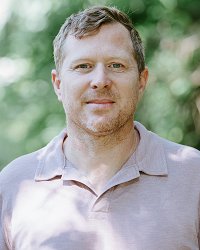
Kurt Waldman (Cornell University, Global Development)
(video)
Abstract: Extreme events are more memorable and can influence our ability to recall information objectively. This notion, referred to as the availability heuristic, may influence farmers perceptions of longer-term climate shifts and shape critical food security decisions such as when to sow a crop and what to sow. In this talk I will discuss challenges researchers face in conceptualizing extreme weather events and the implications of this for understanding decisions farmers face in response to these events. I will present work from a project studying the extent to which Zambian farmers rely on past climate experiences to make maize seed choices in the context of the ‘choice overload’ that emerged out of seed market liberalization in Africa. This work combines high-resolution precipitation data, remotely sensed maize growth periods, and surveys with smallholder farmers to examine why farmers choose different seed varieties and sowing dates—and the extent to which this is related to previous experience with drought events. I will also discuss tools we are developing to help aid farmers in decision making related to weather risk.
Bio: Kurt Waldman is an assistant professor in the Department of Global Development in Cornell CALS at Cornell University. He studies judgment and decision-making related to environmental sustainability, climate adaptation, and food security. He uses interdisciplinary quantitative methods, drawing on behavioral experiments, and econometrics, often integrating social and environmental data. His research focuses on cognition and decision-making related to climate adaptation, sustainable agricultural technology adoption, and food security. He is interested in the role of heuristics and cognitive biases in environmental decision-making and how decision science can be used to enhance the sustainability of policy outcomes. He uses a combination of household-level survey data, behavioral experiments with decision-makers, and environmental data.
May 5: Climate Change Causes and Curatives
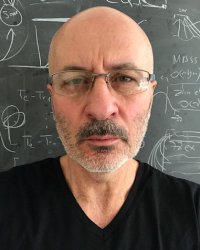
Shimon Edelman (Cornell University, Psychology)
(video)
Abstract: Climate change, a planetary-scale catastrophe that spells doom for the industrial civilization, as well as extinction for countless species (possibly including ourselves) is often described as being of our own making — as if the political-economic order under which the vast majority of people in the modern world toil has ever been up to them. In this talk, I shall discuss the socioeconomic roots of our deadly modernity; the unsustainable growth imperative at its core; the politics of obfuscation and oppression that preserves the power and privileges of the ruling class; and, finally, ways to resist the profiteering planet-killers, enact climate justice, and save what can still be saved. A better world is possible if we resolve to work together to build it.
Bio: Shimon Edelman is Professor in the Department of Psychology at Cornell University. He holds degrees in electrical engineering and in computer science and has published more than 100 papers and dozens of book chapters on topics ranging from motor control, visual perception, and the evolution and acquisition of language to artificial intelligence, philosophy of mind, and computational theories of consciousness. His most recent monographs are “Life, Death, and Other Inconvenient Truths: A Realist’s View of the Human Condition” (2020) and “The Consciousness Revolutions: From Amoeba Awareness to Human Emancipation” (2023). While his present scientific interests focus on evolution and consciousness, his work, and especially teaching, is now motivated by the most urgent challenge that we face collectively as a species: the accelerating climate catastrophe.
February 5: How Can Ordinary People Make a Difference to the Climate Crisis?
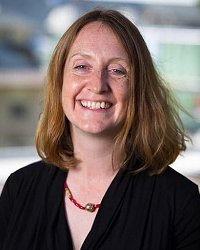
Caroline Levine (Cornell University, Literatures in English)
(video)
Abstract: Most of us have learned to focus on what we each buy and waste, but there are reasons these actions might not help us to avert the worst of the climate crisis. In this seminar, we’ll think about how social change happens, and we’ll focus on shifting our attention from the power of individual consumers to the effectiveness of groups.
Bio: Caroline Levine has spent her career asking how and why the humanities and the arts matter, especially in democratic societies. She argues for an understanding of forms and structures as essential both to understanding links between art and society and to the challenge of taking meaningful political action. In her latest book, The Activist Humanist, Levine explores how humanities thinking can guide effective political action.
Feb 12: The Importance of Wetlands and Waterbodies to the Global Carbon Budget
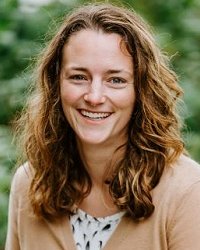
Meredith Holgerson (Cornell University, Ecology & Evolutionary Biology)
(video)
Abstract: Wetlands, ponds, and lakes play an important role in global carbon cycling by sequestering carbon in their sediments and emitting greenhouse gases to the atmosphere. Yet, there is a lot of uncertainty in the extent to which wetlands and waterbodies are carbon sinks or carbon sources, and inventorying emissions. In this talk, we will discuss the role of wetlands and waterbodies in the global carbon budget and provide an overview of our lab’s research studying the carbon cycle in ponds, lakes, and wetlands.
Bio: Meredith Holgerson is a freshwater ecologist studying how ponds and lakes function and respond to environmental change. Her research program focuses on community and ecosystem ecology, and she is interested in how organisms and ecosystem processes interact. She asks questions about freshwater food webs, community composition, greenhouse gas production, and ecosystem metabolism. Her research relies on field studies, small-scale and whole-ecosystem experiments, and collaborations to scale local observations to global patterns.
Feb. 19: Heat Waves: Extreme Events in a Warming World
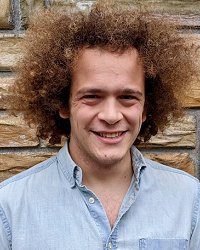
Lucas Vargas Zeppetello (UC Berkeley, Department of Environmental Science, Policy, and Management)
(video)
Abstract: Among the most consequential environmental hazards, heat waves are complicated phenomena that involve relationships between the atmosphere, the land surface, and the biosphere. In this seminar, we’ll learn about how heat waves are changing across the global land surface, why this might be happening, and what it means for human exposure to dangerous levels of heat stress.
Bio: Lucas Vargas Zeppetello is an assistant professor in the Department of Environmental Science, Policy, and Management at UC Berkeley. His research focuses on understanding the relationship between novel soil moisture observations, ecosystem dynamics, and land surface climate variability.
March 4: The Place of Human Values in Climate-risk Research
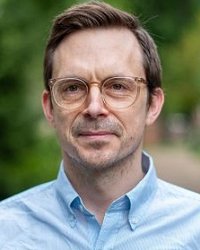
Casey Helgeson (Pennsylvania State University)
(video)
Abstract: Climate change poses many risks. Research on these risks—and on what to do about them—unavoidably goes beyond purely scientific matters to touch on questions of values and ethics. Whose risks are most worthy of attention from researchers? Which stakeholder perspectives are acknowledged when assessing potential responses to risk? In this seminar, I will provide an overview of important concepts for thinking and communicating clearly about the interplay of social values and STEM research. I will discuss best practices for navigating this interplay and show examples of their implementation in the area of climate-risk research.
Bio: Casey Helgeson is an assistant research professor at Penn State’s Earth and Environmental Systems Institute. His work addresses the place of human values within research design practices. He focuses on climate-risk research with the goal of ensuring such research can support inclusive and values-based decision-making about climate adaptation. Before Penn State, he held postdoc positions at the French National Center for Scientific Research (CNRS) and London School of Economics. He holds a PhD in Philosophy and BS in Mathematics from the University of Wisconsin–Madison.
March 11: Meeting the Net-zero Challenge: Corporate Climate Impact at Scale With the Voluntary Carbon Market
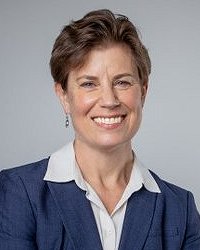
Dr. Jennifer Jenkins (Rubicon Carbon)
(video)
Abstract: The economic transformation required to reach global net zero requires change on the scale of the Industrial Revolution, taking place with the speed of the Digital Revolution (Al Gore, 2021). And while progress is encouraging, it is still too slow. The private sector is an important lever for change, but in order for the private sector to act, the range of solutions presented must be palatable and practical for corporate actors. The voluntary carbon market (VCM) is a critical mechanism that can be scaled for impact to help companies meet their own net zero goals. This talk will introduce the VCM, describing how it works and the opportunities it presents, as well as the barriers it faces.
Bio: Dr. Jennifer Jenkins is Chief Science Officer at Rubicon Carbon, a company specializing in supporting enterprise customers through their decarbonization and net-zero journeys with market-based products and solutions. Dr. Jenkins is broadly responsible for ensuring that Rubicon’s products and portfolio meet the highest standards for quality and integrity. In addition, she leads Rubicon Carbon’s work on monitoring, reporting, and verification (MRV) as well as stakeholder engagement, ESG strategy, marketing, and thought leadership.
With a technical background in carbon cycling and ecosystem science, Dr. Jenkins brings more than 25 years of experience on matters at the intersection of business and climate across government, academia, and the private sector. A co-recipient of the 2007 Nobel Prize along with Al Gore and other IPCC scientists, she led the work that culminated in the publication of the “Jenkins Equations,” the widely accepted method for estimating tree biomass from diameter in the US. Dr. Jenkins earned a Ph.D. in Ecosystem Science and Natural Resources from the University of New Hampshire, a Master of Forest Science from Yale University’s School of Forestry and Environmental Studies, a Bachelor of Arts in Biology and Environmental Studies from Dartmouth College, and a Master of Business Administration from the University of Maryland’s RH Smith School of Business.
March 18: Climate Intervention: What Do We Know, What Do We Need to Know, Should We Know It?
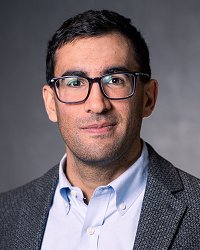
Daniele Visioni (Cornell University, Earth & Atmospheric Science)
(video)
Abstract: Climate intervention (or climate engineering, or geoengineering) is a topic that is gaining prominence in mainstream climate policy discourse, especially as the chance of remaining below 1.5 ºC of warming above preindustrial levels fades. It is defined as any deliberate, large scale intervention in the climate system aimed at reducing the harmful effects of the increase in greenhouse gases. As an umbrella term, it usually includes both large scale methods of CO₂ removal from the atmosphere (Carbon Dioxide Removal, CDR) and methods aimed at reducing the incoming sunlight in order to cool the planet (Solar Radiation Modification, SRM). In this talk, I will give an overview of SRM methods, and focus on the diverse sets of challenges they present: technological, ethical and related to governance. CDR or “negative emissions” are now present in almost all “net-zero” plans from both governments and private sector actors, and all major scenarios from the Intergovernmental Panel on Climate Change (IPCC) include some; but problems with their probable environmental impacts, land use, trade-offs with food production and technical challenges with their scalability need to be addressed, and uncertainties abound. SRM, while still at the fringe, may offer on the other hand a “cheap and easy” temporary solution capable to ameliorate some of the risks, but far more research would be necessary to understand its potential, limits, and novel risks, and some burning questions remain: whose hand would be on the thermostat, whose consent should be asked before SRM could even start, and can a global governance system capable of ensuring a “just” deployment ever be developed?
Bio: Daniele Visioni is an Assistant Professor in the Earth and Atmospheric Sciences Department at Cornell University since 2023. He received his PhD in Atmospheric Chemistry and Physics in 2018 in Italy. With the use of Earth System Models, he researches the impacts of stratospheric aerosols on climate, societies and environments. His research is mostly focused on understanding the potential impacts of Climate Intervention techniques, collaborating across disciplines to understand what information would be needed to produce robust, trustworthy assessments that decision-makers and publics may use to make informed decisions about their eventual deployment. He’s the co-chair of the Geoengineering Model Intercomparison Project (GeoMIP) and of the Lighthouse Activity on Climate Intervention for the World Climate Research Program.
March 25: The Next Phase of Business Sustainability
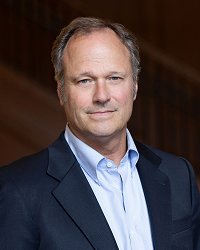
Andrew Hoffman (Holcim Professor of Sustainable Enterprise, University of Michigan)
(video)
Abstract: Business sustainability has come a long way. From the dawn of the modern environmental movement and the establishment of environmental regulations in the 1970s, it has become a strategic concern driven by market forces today. But, the era of corporations integrating sustainable practices is being surpassed by a new age of corporations actively transforming the market to make it more sustainable. The first phase of business sustainability, what we call “enterprise integration,” is founded on a model of business responding to market shifts to increase competitive positioning by integrating sustainability into preexisting business considerations. By contrast, the next phase of business sustainability, what we call “market transformation,” is founded on a model of business transforming the market. Instead of waiting for a market shift to create incentives for sustainable practices, companies are creating those shifts to enable new forms of business sustainability.
Bio: Andrew (Andy) Hoffman is the Holcim (US) Professor of Sustainable Enterprise at the University of Michigan; a position that holds joint appointments in the Stephen M. Ross School of Business and the School for Environment and Sustainability. For the 2023-2024 academic year, he is a visiting climate fellow at the Institute for the Study of Business in Global Society at the Harvard Business School. His research uses organizational behavior models and theories to understand the cultural and institutional aspects of environmental issues for organizations. He has published over 100 articles/book chapters, as well as 18 books, which have been translated into five languages.
April 15: Zero-Carbon Electricity: The Key to the Clean Energy Transition
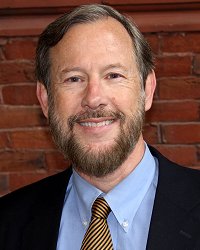
Dr. Karl Hausker ‘79 (Climate Program, World Resources Institute)
(video)
Abstract: To avoid worsening impacts of climate change, the United States and the world as a whole must dramatically reduce greenhouse gas emissions over the next 30 years, and carbon dioxide emissions must be virtually eliminated by mid-century. This will require the electricity sector to play a pivotal role in the transformation of how we produce and consume energy. We need to switch completely to zero- and low-carbon means of producing electricity, while switching from fossil fuel combustion to use of electricity in a variety of applications in buildings, transportation, and industry. This seminar will explore the issues, challenges, and opportunities in the electricity sector as we transition to clean energy
Bio: Dr. Karl Hausker is a Senior Fellow in the Climate Program at the World Resources Institute. He leads analysis and modeling of net-zero emission pathways, and work on electricity market design. He served as an Expert Reviewer for the IPCC Sixth Assessment Report.
He has worked for three decades in the fields of climate change, energy, and environment in a career that has spanned legislative and executive branches, research institutions, NGOs, and consulting. Before joining WRI, Karl was a Vice President at ICF Consulting from 2007-2013. He previously served as Deputy Assistant Administrator in EPA’s Policy Office, and as Chief Economist for the Senate Energy and Natural Resources Committee. In 1999, he was a Visiting Fellow at the Tata Energy Research Institute in New Delhi.
Karl holds an M.P.P and Ph.D. in Public Policy from University of California, Berkeley, and received his B.A. in Economics from Cornell University.
April 22: A Tale of Twin Energy Developments: Shale Gas and Large-Scale Solar
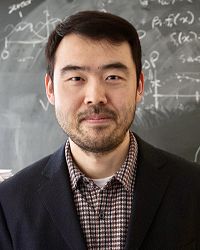
K. Max Zhang (Cornell University, Mechanical & Aerospace Engineering)
(video)
Abstract: This talk goes through two major developments in energy transitions and the associated social, economic, and environmental impacts. The phenomenal growth in shale gas production over the last decade has fundamentally reshaped the energy systems in the U.S. and geopolitics in the world. However, the environmental and climate impacts of shale gas development have led to distinctly different energy policies even in neighboring states. Large-scale solar is an emerging energy development in the U.S. While it plays a critical role in achieving the ambitious grid decarbonization goals, the public acceptance of large-scale solar has been mixed. The speaker argues that a new kind of developmental process is necessary to accelerate renewable energy deployment while creating vibrant communities that host those projects.
Bio: Dr. Zhang’s research interests focus on energy and the environment, driven by societal impact. He studies the interactions between energy and environmental systems using numerical models and experimental techniques, in the context of air pollution, renewable energy, and deep decarbonization. His research has led to major legislation and programs in New York, the U.S., and internationally. He is a Fellow of the American Society of Mechanical Engineers. Dr. Zhang’s group aims to establish a source-to-receptor relationship for harmful airborne particulate matter (PM) and gaseous pollutants and indoor contaminants, with applications on near-source air pollution, indoor environmental quality, and environmental justice.
April 29: Climate Change: Past, Present, and Future
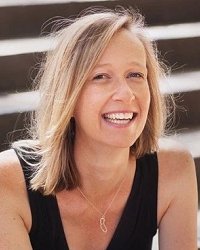
(video)
Abstract: It’s now unequivocal that human activities are changing the climate. The world is 1.2°C hotter than it was before the Industrial Revolution, and this is already having profound consequences for everyone who lives on the planet. But the climate has changed before – how do we know the most recent trends are attributable to humans? And what can past climate change teach us about what lies in store? In this seminar, we’ll discuss how scientists use multiple tools – climate models and tree rings, historical records, and satellite observations – to answer these questions.
Bio: Kate Marvel is a Research Physical Scientist at the NASA Goddard Institute for Space Studies. She served as Chapter Lead for Climate Trends on the Fifth National Climate Assessment. Before joining NASA, she served on the User Advisory Group for the National Space Council, advising Vice President Harris and the Space Council. Her book Human Nature: Climate Science in Nine Emotions will be published by Ecco Press in 2025. Kate has a background in theoretical astrophysics, which is how she knows that Earth is the only good planet.
May 6: Making Climate Policy Models More Decision-relevant
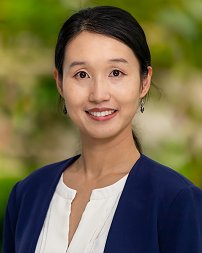
Wei Peng (Princeton University)
(video)
Abstract: Efforts to achieve decarbonization targets often fall short. Integrated assessment models (IAMs) have been used widely to assess current policies and quantify the additional efforts needed to close the gap. Yet, IAMs still lack adequate considerations of socio-political factors that are central to climate policy making. This makes them overly abstract and simplistic to inform concrete decisions by national and subnational policymakers. In this talk, I will discuss our research focused on three areas to make IAMs more decision-relevant: 1) enhancing policy realism by incorporating political economy insights on policy instrument choices; 2) assessing winners and losers of climate policy by coupling IAMs with fine-scale impact assessment models; and 3) identifying equitable policy strategies by assessing multiple objectives under future uncertainties. I will demonstrate a range of modeling examples, from impacts of U.S. industrial policy on future decarbonization to the unintended health effects from a global carbon price.
Bio: Wei Peng is an assistant professor in the School of Public and International Affairs and the Andlinger Center for Energy and the Environment at Princeton University. She is a climate policy researcher and integrated assessment modeler of energy, air quality, and health. Her work focuses on modeling human-centered decarbonization pathways to inform energy strategies that are realistically implementable and politically durable. Her research has been published in Nature, Nature Climate Change, Nature Sustainability, PNAS among others, and has been featured in national and local media such as PBS and NPR. She also served as a co-author of the Fifth National Climate Assessment.
Peng received her PhD degree in Science, Technology and Environmental Policy from Princeton University and her Bachelor’s degree in Environmental Sciences from Peking University. She was also a faculty member at Penn State University and a postdoc fellow at the Harvard Kennedy School.
January 30: An Introduction to Climate Risk Management
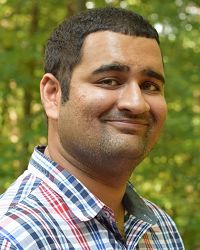
Vivek Srikrishnan (Cornell University, Biological and Environmental Engineering)
(video)
Abstract: Climate change enhances and creates risks. Identifying and implementing sound climate risk management strategies involves many challenges, including deep and dynamic uncertainties, complex feedbacks between climate and socioeconomic systems, and the different scales on which different risk management strategies operate. In this talk, I will describe several ways in which climate change affects risk calculation, why uncertainty plays a critical role in climate risk analysis, and different approaches to climate risk management.
Bio: Vivek Srikrishnan is an Assistant Professor in the Department of Biological & Environmental Engineering at Cornell University. He works on quantifying the impacts of climate change and identifying and evaluating strategies for climate risk management. His research employs methods and insights from systems engineering, data science, decision science, and economics.
February 6: The Political Economy of Greening China
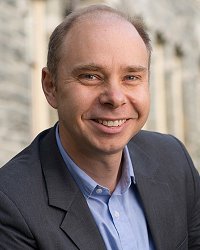
Jeremy Lee Wallace (Cornell University, Department of Government)
(video)
Abstract: Without action from China, the world will not be able to contain the climate emergency. China produced nearly 30% of global carbon emissions in 2020, making Xi Jinping’s declaration that year that his country would be carbon neutral by 2060 one of epic significance. Will China be able to meet or exceed this goal, and what political and economic roadblocks stand in its way? This lecture introduces some of the challenges, opportunities, and competing narratives at play, with a particular focus on real estate construction and China’s growth model.
Bio: Prof. Wallace teaches courses related to urbanization, authoritarianism, and economic development. China’s Next Economy is a lecture course focusing on today’s debates about the costs and opportunities facing the leaders and citizens of China as they transition into the technology and service-dominated future.
February 13: How Cornell’s New 3-Km Deep Borehole Observatory (CUBO) Informs the Potential for Deep Direct-use Geothermal Heating on Campus
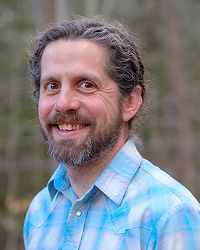
Patrick Fulton (Cornell University, Earth and Atmospheric Sciences)
(video)
Abstract: Motivated by Cornell University’s aspiration to use geothermal heat to replace fossil fuels to heat campus buildings, in the summer of 2022, a 3-km deep geothermal exploratory well, the Cornell University Borehole Observatory (CUBO), was drilled on the Ithaca, NY campus. CUBO extends through largely low porosity and permeability Paleozoic sedimentary rocks above granulite-grade Grenville metamorphic basement rocks.
The main objective of CUBO is to explore potential fracture-dominated reservoir targets in both the sedimentary units and basement where temperatures are anticipated to range between 70 – 95 oC and help guide and de-risk decisions regarding the development of deep geothermal energy systems both at Cornell and elsewhere. CUBO is designed to be a dedicated observatory and testing borehole, separate from any future operational well pairs, and the resulting data and findings will be openly shared. The access to the subsurface provided by CUBO also permits ancillary experiments and investigations that advance our understanding of subsurface processes and conditions in general.
Here I will discuss the preliminary results of our analysis of the various geologic, hydrologic, logging, sampling, and downhole testing data acquired. I will also discuss the opportunities and general challenges associated with geothermal energy, and the important role earth scientists have in developing sustainable low-carbon energy solutions.
Recommended Reading: Geothermal 2.0: Why Cornell University Put a 2-Mile Hole in the Earth (Christian Science Monitor, 10/28/2022)
Bio: Patrick Fulton joined the faculty of Cornell’s School of Earth and Atmospheric Sciences (EAS) in January 2019. Fulton is an assistant professor and a Croll Sesquicentennial Fellow whose research interests include hydrologic and thermal processes within fault zones and how these processes either control fault slip behavior or provide insightful signatures within fault rocks. After post-docs in Oregon and Texas and a stint as a research scientist in California, Fulton took a faculty position at Texas A&M in 2016, where he taught for three years.
February 20: Known Unknowns or Unknown Unknowns? Sources of Uncertainty in Climate Change Projections and How to Handle Them
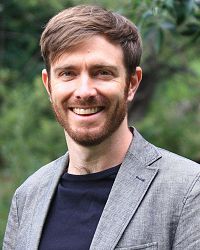
Flavio Lehner (Cornell University, Earth and Atmospheric Sciences)
(video)
Abstract: Climate is changing and is expected to continue to do so for the foreseeable future. How much exactly is however unknown because many different sources of uncertainty contribute to cloud our outlook. Do we understand the physics well enough? Are climate models fit for purpose? What are humans going to do? And what about natural variability of the climate system? In this talk, I will discuss all of these sources of uncertainty and how, despite them, we can make useful predictions about future climate and its impacts on humans and ecosystems.
Bio: Flavio Lehner joined the Cornell Department of Earth and Atmospheric Sciences in 2020 as an assistant professor. “Climate science is inherently an interdisciplinary science and solving its puzzles requires the kind of open-mindedness and excellence that a place like Cornell has fostered since its foundation,” says Lehner. Lehner’s research strives to improve our collective understanding of large-scale climate variability and change and its influence on regional climate impacts such as droughts, heatwaves, or wildfires.
March 6: How to Reach Low Carbon Targets – What does the 1.5C Report Tell Us?
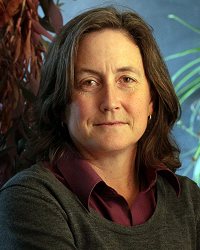
Natalie Mahowald (Cornell University, Earth and Atmospheric Sciences)
(video)
Bio: Natalie Mahowald is the Irving Porter Church Professor in Engineering, Director of Graduate Studies for Atmospheric Sciences in the College of Engineering, and the Co-Leader, Working Group on Reducing Climate Risk for Cornell Atkinson Center for Sustainability. Her research group is focused on understanding feedbacks in the earth system that impact climate change. This includes global and regional scale atmospheric transport of biogeochemically important species such as desert dust, as well as the carbon cycle. Her group looks at these issues through a combination of 3-dimensional global transport and climate models, as well as analysis of satellite and in situ data. She a Ph.D. in Meteorology from MIT, MS in Natural Resource Policy from U MIchigan, and is a fellow of AMS, AGU, and AAAS, and has been a lead author on two IPCC reports.
March 13: Universities in the Climate Crisis: Lessons From the Land-grant Experience
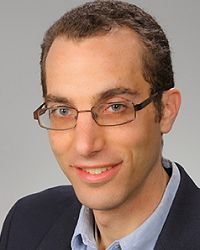
Robert Kopp (Rutgers University, Department of Earth & Planetary Sciences)
(video)
Abstract: Established amidst the bloodshed of the Civil War, land-grant universities, together with the associated agricultural experiment stations and cooperative extension services, have played a crucial role in democratizing scientific knowledge and addressing intertwined educational, environmental, economic, and democratic challenges within the USA. Indeed, they have arguably pioneered the idea of “usable science.” Today, the climate crisis and the urgent challenges of the Anthropocene demand a more robust relationship between scientific research and on-the-ground action, strong networks sharing local lessons globally, and channels for injecting global, long-term perspectives into the noise of short-termism. We discuss insights into these challenges from the historical land-grant experience and examples of ongoing work in climate services and climate action at Rutgers University.
Bio: Robert Kopp is a climate scientist who serves at Rutgers University as a Professor in the Department of Earth & Planetary Sciences and as Co-Director of the University Office of Climate Action. He also directs the Megalopolitan Coastal Transformation Hub, a National Science Foundation-funded consortium that advances coastal climate adaptation and the scientific understanding of natural and human coastal climate dynamics. He is also a director of the Climate Impact Lab, a multi-institutional collaboration of more than two dozen economists, data scientists, climate scientists, and policy experts, working to bring Big Data approaches to the assessment of the economic risks of climate change.
March 20: Climate Justice: Why We Can’t Wait
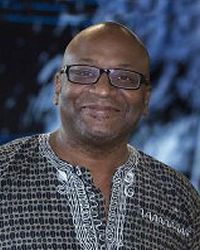
Gregory S. Jenkins (Penn State, Meteorology and Atmospheric Science, Geography, and African Studies)
(video)
Abstract: During the spring of 1963, while my brother and I were in the protective space of my mother’s womb, Dr. Martin Luther King Jr. was in a Birmingham prison because of his non-violent resistance against social injustice. While in prison, he wrote his fellow clergypersons to let them know about his disappointment in their lack of social justice action against a racist system of laws and the violence black Americans had been facing. Some 60 years later, we see another form of injustice all around the globe, with new burdens placed on future generations in terms of climate injustice— which includes the hazards of climate change, environmental injustice, and social injustice. In this talk, I discuss the reasons why we need a climate justice movement and why we can’t wait any longer.
Bio: Prof. Jenkins’ climate research focuses on late 20th century drying and model projections of more arid conditions in the middle to late 21st century have and may further alter the way of life for many in West Africa. Understanding the processes related to these changes require analysis of regional and global models. It also requires a better understanding of limited observations for determining emerging trends in West Africa. Climate variability and change will increase the challenges of decision-makers in West Africa who are addressing issues of urbanization, poverty alleviation, water resources, public health, and food security.
March 27: A Roadmap for Climate Action – Investing in Technology, Nature and Policy for a Sustainable Planet
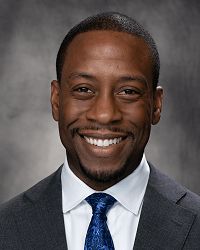
Stephan Nicoleau (Managing Director at FullCycle)
(video)
Abstract: Solving the climate crisis will require new ways of doing business and allocating resources that can benefit both people and the planet. Climate science tells us that abating the most harmful greenhouse gasses and protecting nature’s role in stabilizing our climate has the potential to avoid runaway warming scenarios. While the solutions for effective climate action are largely known, it is the speed of implementation that will matter greatly, as will our ability to see the many dimensions of the scaling problem. This talk will roadmap technological and nature-based solutions, financing mechanisms, and effective policy – all of which play a critical role in addressing the most pressing issue of our times. It will highlight the key levers for action, such as methane mitigation, climate finance mobilization, and natural systems restoration – and our common but differentiated responsibilities for action in this most critical decade ahead.
Bio: Stephan Nicoleau is a General Partner at FullCycle, a sustainable infrastructure fund that is accelerating climate solutions globally. He is a member of the Board of Directors for Project Drawdown, a nonprofit organization that has built one of the most enduring climate solutions frameworks. Stephan is also on the board of the Mellon Foundation-funded Monument Lab, a PiTech Visiting Impact Practitioner at Cornell Tech, a climate judge for the Keeling Curve prize, and is a thought leader who works across sectors to align policy, capital and innovation for climate impact. Stephan advises leadership at the Departments of State and Energy on climate policy and implementation, and is currently leading The Astra Project, a cross-sectoral collective aligning action at the intersection of methane reduction, nature-based solutions, and climate financing.
April 10: Building a Net-Zero America
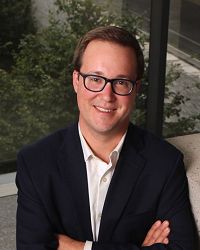
(video)
Abstract: For the first time in history, the full financial weight of the United States federal government is aligned behind a transition to clean energy. A trio of energy, infrastructure, and science laws passed by the last Congress will deploy over half a trillion dollars of public funding over the next decade to wean the United States off fossil fuels and make cleaner alternatives cheap and ubiquitous. The challenge now: to build new clean energy infrastructure at an unprecedented pace and scale and take full advantage of this historic opportunity. This talk will discuss how far the U.S. has come on the path to net-zero emissions, how much work remains, and the many non-financial barriers that will slow the pace of transition unless proactively addressed. Prof. Jenkins leads the ZERO Lab at Princeton University, was a co-PI for the landmark Net-Zero America study, a co-author of the National Academies of Science, Engineering and Medicine report Accelerating Decarbonization of the U.S. Energy System, and currently leads the REPEAT Project, which assesses the impacts of federal energy and climate policies on an ongoing basis.
Bio: Jesse D. Jenkins is an assistant professor at Princeton University with a joint appointment in the Department of Mechanical and Aerospace Engineering and the Andlinger Center for Energy and Environment. He is also an affiliated faculty with the Center for Policy Research in Energy and Environment at the Princeton School of Public and International Affairs and an associated faculty at the High Meadows Environment Institute.
April 17: Bouncing Back From the Climate Crisis
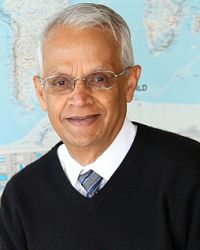
Ram Ramanathan (Cornell University, Global Development & UC San Diego)
(video)
Abstract: We are now witnessing large-scale amplification of warming-driven extreme weather events, impacting close to 5 billion people. Fossil fuels, the major source of warming, are still contributing more than 78% of global energy. I will describe a new approach for bouncing back from the crisis cleaner, healthier, and stronger. It will target climate resilience, built on three pillars: Mitigation, Adaptation, and Societal transformation. For societal transformation, I will describe ideas considered by social scientists to bring more Americans in favor of urgent climate actions. These involve narrative changes: from climate change to public health to get more public support; individual actions such as avoiding waste; pivot from short-termism to long-term co-benefits such as a cleaner and more technologically advanced America; among several others. Alliance with local to regional faith leaders should be explored to unpack climate change from all the other issues that have divided our Nation.
Bio: Veerabhadran “Ram” Ramanathan discovered the greenhouse effect of CFCs (chlorofluorocarbons) in 1975 and showed that a ton each of CFC-11 and CFC-12 has more global warming effect than 10,000 tons of CO2. This discovery established the now-accepted fact that non-CO2 gases are a major contributor to planetary warming and also enabled the Montreal Protocol to become the first successful climate mitigation policy. For this work, he was awarded the 2009 Tyler Prize by Nobel Laureate Sherwood Rowland. In 1980, Madden and Ramanathan were the first to make a statistical prediction that global warming will be detected above the background noise by 2000, a prediction which was verified by the IPCC in 2001. He led a NASA study with its climate satellite to show that clouds had a net cooling effect on the planet and quantified the radiation interactions with water vapor and its amplification of CO2 warming. He led international field campaigns and developed unmanned aircraft platforms for tracking brown cloud pollution worldwide. His work has led to numerous policies including the formation of the Climate and Clean Air Coalition by the United Nations to reduce short-lived climate pollutants (HFCs; Methane; Black Carbon and Ozone).
April 24: How Can We Understand the Vulnerabilities Communities Face to Climate Change-related Disasters and Equitably Build Resilience Within Those Communities?
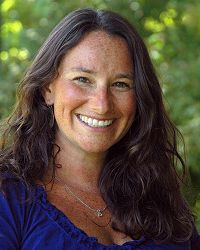
Rebecca Morgenstern Brenner (Brooks School of Public Policy)
(video)
Abstract: We know climate change means that there will be more frequent and more intense disasters. How can we understand the vulnerabilities communities face to more frequent and more intense disasters and build resilience within those communities? This session will look at how to understand what is vulnerability, risk, and exposure communities face and how we can expand adaptative capacity and build resilience? How do we develop equitable policies in a changing global climate?
Bio: Rebecca Morgenstern Brenner, MPA is a Senior Lecturer in the Jeb E. Brooks School of Public Policy at Cornell University with additional collaborations as a Cornell Atkinson Center for Sustainability Faculty Fellow, Faculty Fellow in the Einhorn Center for Community Engagement, and Mario Einaudi Center for International Studies Faculty Associate. Rebecca is co-lead for the FEMA’s Higher Education Service-Learning and Leadership Special Interest Group. Rebecca teaches courses on environmental policy, environmental justice, vulnerability and resilience, disaster policy, project management, and consulting. Rebecca’s research and practice focus on translating values into practice and policy and working with communities to reduce vulnerability and build resilience. To do this, Rebecca collaborates with international and domestic partners to build innovative approaches that address and improve social and environmental conditions. Her current research and practice include managed retreat and equity, environmental justice, bridging policy with science, climate change education, and building disaster resilience with vulnerable communities.
May 1: Climate Risk: Historical Roots of a Vulnerable Science
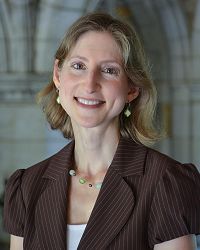
Deborah Coen (Yale, Program in the History of Science and Medicine)
Abstract: This presentation uses history to illuminate a profound misalignment between today’s science of climate change and the goals of climate justice. A fundamental ambivalence lies at the heart of the science of human “vulnerability” to climate change. As psychoanalysts concerned with climate change have recently observed, the culture of industrial capitalism tends to breed individuals who cannot tolerate evidence of their dependence on other people, nor on the physical environment. The sciences of the atmosphere have alternately critiqued and contributed to this idealization of invulnerability. To illuminate this dynamic, this presentation outlines a history of scientific efforts to measure the dependence of living things on the atmosphere. It focuses on the earliest such effort, the invention of the eudiometer (literally, a gauge of the air’s “virtue”) in the eighteenth century. The rise and fall of eudiometry reflected a momentous shift in the meaning of “sensibility,” a predecessor to today’s concept of vulnerability. This history holds important lessons for the science and policy of climate risk in the twenty-first century.
Bio: Deborah R. Coen is a historian of science whose research focuses on the modern physical and environmental sciences and on central European intellectual and cultural history. She earned an A.B. in Physics from Harvard, an M.Phil. in History and Philosophy of Science from Cambridge, and a Ph.D. in History of Science from Harvard, where she was also a Junior Fellow of the Society of Fellows. Before coming to Yale, she taught for ten years in the History Department at Barnard College and was Director of Research Clusters for the Columbia Center for Science and Society.
May 8: Eating Our Cake Without Losing It: Modeling for Global Food Security and Environmental Goals
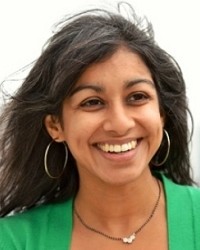
Sonali McDermid (New York University, Environmental Studies)
(video)
Abstract: Global agriculture has transformed ~40% of Earth’s land surface, consuming copious inputs including water, fertilizer, and land. While we are currently producing more than we ever have, this has not meant food and nutrition security for all, furthermore, agriculture and associated land use is now major contributor to climate change, exceedance of biogeochemical flows, biodiversity loss, and water over-extraction. By the same token, climate change and extremes increasingly threaten agriculture and food security. In response to these challenges, interest in sustainable food system transformations is growing, and a large emphasis has been placed on improving agricultural production. Emerging efforts (and carbon markets) are even pursuing agriculture as a “nature-based” climate solution via increasing soil and agroecosystem carbon sequestration. Land systems modeling is a crucial tool for understanding agriculture as both a driver of global environmental change as well as its vulnerabilities to these changes. Both must be better understood – and better modeled – in order to meet the combined goals of global food security and global environmental change mitigation into the future. My talk will provide a brief overview of agriculture-Earth systems interactions and identify key questions for modeling agriculture in a land and Earth systems framework. In doing so, I will flag key outstanding uncertainties on which future research is needed and highlight important efforts for coordinated and cross-disciplinary Earth system modeling centered around agriculture and land use.
Bio: Sonali McDermid is an Associate Professor in the Dept. of Environmental Studies at NYU. Her research focuses on understanding both climate change impacts on agriculture and food security, and the impacts of agriculture on the environment. She is a Climate Co-Lead for the Agricultural Intercomparison and Improvement Project (www.agmip.org), evaluating climate change impacts on food security and livelihoods across South Asia and Sub-Saharan Africa. She is also affiliated with the NASA Goddard Institute for Space Studies, where she works to improve the representation of agricultural land management in the NASA GISS ModelE. She is a recent Andrew Carnegie Fellow (2021) and Fulbright-Kalam Fellow awardee (2020), which supports her work looking at the intersection of climate mitigation and adaptation in agriculture. She holds a B.A. in Physics from NYU, and a Masters and Ph.D. from the Dept. of Earth and Environmental Sciences at Columbia University, focusing on Atmospheric Science and Climatology. Prior to NYU, she was NASA Postdoctoral Fellow at the Goddard Institute for Space Studies in NYC. She currently serves as Editor-in-Chief of AMS Earth Interactions.
January 31: Climate Change and Food Systems: Impacts, Adaptation, and Mitigation
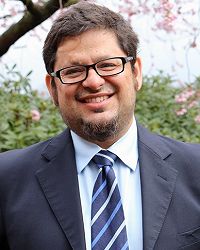
Mario Herrero Acosta (Global Development, Cornell University)
(video)
Bio: Mario Herrero is a professor of sustainable food systems and global change in the Department of Global Development and a Nancy and Peter Meinig Family Investigator in the Life Sciences. At Cornell Atkinson, he serves as a Cornell Atkinson Scholar. His research focuses on increasing the sustainability of food systems for the benefit of humans and ecosystems. He works in the areas of sustainable intensification of agriculture, climate mitigation and adaptation, livestock systems, and healthy and sustainable diets.
Feb. 7: How to Get Into the Red: Cornell as a Living Laboratory and Reaching Carbon Neutral

Natalie Mahowald (Cornell University)
(video)
Abstract: Meeting low climate targets requires substantial cuts in emissions, especially in developed countries. Most estimates suggest that to keep temperatures below 2C, a radical reduction in energy demand, transformation of the electric power industry to renewable energy, electrification of many industries, and substantial deployment of carbon dioxide removal technologies is required in the US and the world. What role does Cornell play in this effort? Our Campus has pledged to cut direct emissions from our Combined Heat and Power Plant to zero by 2035, but is that enough? Here we discuss what the carbon footprint is for Cornell as a whole, including procurement and waste, what the greatest sources of emissions are, and talk about what can be done to bring Cornell’s full carbon footprint into the red (negative) by 2040.
Bio: Natalie Mahowald is the Irving Porter Church Professor in Engineering, Director of Graduate Studies for Atmospheric Sciences in the College of Engineering, and the Co-Leader, Working Group on Reducing Climate Risk for Cornell Atkinson Center for Sustainability. Her research group is focused on understanding feedbacks in the earth system that impact climate change. This includes global and regional scale atmospheric transport of biogeochemically important species such as desert dust, as well as the carbon cycle. Her group look at these issues through a combination of 3-dimensional global transport and climate models, as well as analysis of satellite and in situ data. She a PhD in Meteorology from MIT, MS in Natural Resource Policy from UMIchigan, and is a fellow of AMS, AGU and AAAS, and has been a lead author on two IPCC reports.
February 14: The Global Carbon Cycle in the Post-COVID-19 Era
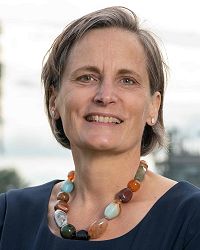
Corinne Le Quéré (University of East Anglia)
(video)
Abstract: Emissions of carbon dioxide (CO2) from human activities have caused the planet to warm and have set in motion a train of changes in the natural carbon cycle. Every year, the land and ocean natural carbon reservoirs, the so-called carbon ‘sinks’, absorb 55% on average of the CO2 emissions we put in the atmosphere from burning fossil fuels, deforestation, and other activities. The carbon sinks slow down the pace of climate change, but they respond themselves to a changing climate by leaving more CO2 in the atmosphere. This lecture will review the latest trends in CO2 emissions including the effect of COVID-19 measures on emissions, and show their current partitioning in the environment. It will discuss the major sources of uncertainties in near-term CO2 emissions and in the long-term capacity of the natural environment to absorb further carbon.
Bio: Corinne Le Quéré is a Royal Society Research Professor of Climate Change Science at the University of East Anglia. She conducts research on the interactions between climate change and the carbon cycle, including those mediated by marine ecosystems. Her research has contributed to understanding how climate change and variability affect the land and ocean carbon sinks and understanding the drivers of CO2 emissions. She also chairs France’s High Council on Climate and is a member of the UK Climate Change Committee. These are independent expert councils that provide evidence-based advice to inform governments’ responses to climate change.
February 21: To Be of Use: Making Our Science Relevant to Policy and Practice in a Fast-Paced, Difficult World
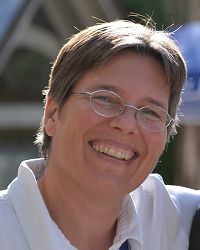
(video)
Abstract: Many students and scientists were motivated to go into science not just out of curiosity about the world, but because they wish to solve societal problems and make a difference in the world – for example on environmental issues, climate change, or societal responses to sustainability challenges. But how do we make sure science is even relevant to what decision-makers and policy-makers need? How do we do this in a world that seems to speed up from year to year? Can we stay relevant? Scientists’ interactions with decision-makers have gone through several revisions of the so-called “social contract of science with society”. These changes were the result, in part, of key shifts in science policy and science funding policy, and more fundamentally, the result of democratization, political-economic changes in educational systems, the neo-liberalization of the academy, rapid changes in technology, the economy, society and local and global environments. This presentation will briefly characterize prior stages in science-policy/practice interactions, and then explore how scientists and their research can become – and stay – relevant in the face-paced and often challenging world in which policies and decisions get made. The topic is not new, but the world in which science tries to be useful is ever more difficult to navigate. What are the implications of accelerating climate change, which is not only a uniquely challenging topic for (physical, natural and social science) research, but which is needed and yet faces unique challenges if it wishes to be “of use” in decision-making. The talk will propose possible pathways for the engaged science of the future, placing these possibilities into the contentious debate between “the accelerated academe” and “slow science.” In doing so, it raises questions and invites us into reflections about what it means to be a “scientist” in a fast, chaotic and increasingly difficult world, how to effectively engage with others, and how to find one’s place, i.e., shape a career, in engaged science.
Bio: Dr. Susanne C. Moser is Director and Principal Researcher of Susanne Moser Research & Consulting, in Hadley, MA, a Research Faculty in the Environmental Studies Department of Antioch University New England and an Affiliated Faculty in the Department of Landscape Architecture and Regional Planning at UMass-Amherst. Susi is a geographer by training (Ph.D. 1997, Clark University) who works nationally and internationally as an independent scholar and consultant from a base in western Massachusetts, the ancestral homeland of the Nipmuc and Pocumtuc. Her work with government agencies, non-profits, foundations, and other researchers and consultants focuses on adaptation to climate change, science-policy interactions, effective climate change communication, and psycho-social resilience in the face of the traumatic and transformative challenges associated with climate change. Susi is the editor of two award-winning edited volumes, one on successful adaptation to climate change; the other on how to communicate climate change. She is a prolific writer, an inspiring speaker and has served on scientific advisory boards for Future Earth, the International Science Council, the US National Research Council and has contributed to the IPCC and US national climate assessments. You can learn more about her at https://www.susannemoser.com.
March 7: Earth’s Water Cycle in a Changing Climate
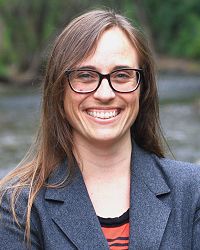
Angie Pendergrass (Earth and Atmospheric Sciences, Cornell University)
(video)
Abstract: Precipitation is a consequential climate feature, which plays an important role in Earth’s physical geography and also its biosphere. As climate changes, so does the risk of disruption of the water cycle we have adapted to. The distribution of precipitation (or lack thereof) in space and time is anticipated to change, and in some respects already is changing, in response to warming. But quantifying the various aspects of this risk is a challenge because of the diverse sources of uncertainty – including natural variability, structural differences among climate models and their projections, and the range of trajectories society might choose to follow. This talk will highlight some of the key questions about Earth’s water cycle and its changes: How does precipitation vary over time, and in response to climate change? Does the latest generation of model simulations have anything new to tell us about this? And, what do we mean when talk about “extreme” precipitation?
Bio: Angie Pendergrass has a BS in meteorology/math and physics from the University of Miami, and an MS and PhD in atmospheric science from the University of Washington. She then joined the National Center for Atmospheric Research as an Advanced Studies Program postdoctoral research fellow. After moving to CIRES at the University of Colorado as a Visiting Fellow, she returned to NCAR as a Project Scientist. She also spent one year as a visitor at ETH-Zurich in Switzerland. She joined Cornell as an Assistant Professor in 2020. Dr. Pendergrass’s research focuses on extreme precipitation and its response to climate variability and change. She studies extreme precipitation and its change holistically, at planetary scales and in the context of the distribution of precipitation in intensity, space, and time. Her research is grounded in a top-down approach that considers fundamental questions about precipitation and its change, including: what role does precipitation play in the flow of energy through the climate system, and what can we learn about precipitation and its change from this? How have extreme precipitation events changed in the past, how will change in the future, and what processes drive these changes? How accurately do models simulate the hydrologic cycle, and how can we improve their accuracy? What are the causes and consequences of changes in the hydrologic cycle for circulation of the atmosphere and ocean, climate sensitivity, and society? In order to address these questions, she develops compact but powerful and useful metrics to describe the characteristics of precipitation. Her toolbox includes theory, analysis of observations, and a hierarchy of models from fully coupled climate models to radiative transfer models and heuristic stochastic models.
March 14: Carbon Dioxide Removal: The Social and Policy Landscape
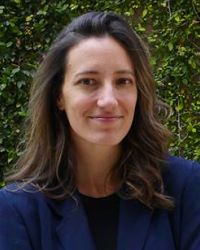
Holly Buck (University at Buffalo)
(video)
Abstract: Countries, subnational jurisdictions, and companies that have set out net-zero emissions targets now face the challenge of laying out specific roadmaps for how they will meet those targets. In most cases, these long-term strategies involve figuring out where and how to remove carbon in order to compensate for some amount of remaining emissions from hard-to-abate sectors like agriculture. Civil society is discussing climate justice risks from carbon dioxide removal as a whole, in terms of the potential for mitigation deterrence, as well as environmental justice risks from particular approaches. Meanwhile, scientists have been studying the technical potentials of various carbon dioxide removal methods, but we also know that social and political factors are going to be critical in scaling up carbon dioxide removal. This talk discusses specific examples from research conducted in the United States that point towards how social science research can help identify community concerns, priorities, and potential benefits from carbon dioxide removal projects and policies. It describes what social science has learned to date about the social dimensions of carbon removal, and outlines priorities for future interdisciplinary research to inform carbon removal policy on multiple scales.
Bio: Holly Jean Buck (Ph.D. ’17) is an Assistant Professor in the Department of Environment and Sustainability at the University at Buffalo. She is an expert on the social and political dimensions of environmental policies, and of strategies and technologies for preventing and adapting to climate change. Buck has published extensively on the politics of carbon removal. Her 2019 book, “After Geoengineering: Climate Tragedy, Repair, and Restoration,” examines topics such as industrial seaweed farms, large-scale carbon sequestration, restoration of wetlands, and reforestation. She has also written about uncertainties surrounding solar geoengineering, in which — hypothetically — tiny aerosols could be injected into the atmosphere to block solar radiation. Buck is interested in how communities can adapt to climate change, and in how the public and environmental groups engage with emerging technologies. Additionally, Buck has studied the Salton Sea in southern California, drawing on interviews, community meetings, and archival material to understand how people living in the area view the decline of this rapidly shrinking inland lake.
March 21: Climate Mitigation in Three Parts: Energy, Land, and Removal
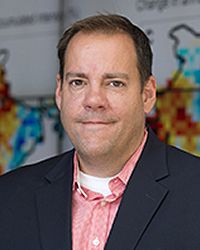
Steven J. Davis (University of California, Irvine)
(video)
Abstract: Global climate targets entail reaching net-zero emissions of long-lived GHGs around midcentury. I’ll present recent work from my group on options and challenges related to climate mitigation along three distinct fronts. First, I’ll present analyses of the geophysical constraints on reliable solar- and wind-based electricity systems, including related modeling of long-duration energy storage options. Second, I’ll share findings of work assessing the global and regional drivers of land-use GHG emissions, including the magnitude and patterns of these emissions embodied in global trade. And finally, I’ll show results from new global modeling to evaluate the biophysical and economic limits and key uncertainties of seaweed-based carbon dioxide removal.
Bio: Stephen J. Davis is an Associate Professor of Earth System Science, University of California, Irvine. Prof. Davis works to understand and find ways to meet the challenge of satisfying global demand for energy, food, and goods without emitting carbon dioxide to the atmosphere. He is interested in studies of coupled human and natural systems and sustainable systems analysis, including: energy technology and policy; of pollution and resources embodied in international trade; of socio-economic inertia and “lock-in” of environmental problems; and of the complex interactions of energy systems, agriculture, climate change, and global ecology.
March 28: Towards Sustainable Energy and Materials: Creating a New Circular Carbon Economy via Carbon Capture, Utilization, and Storage
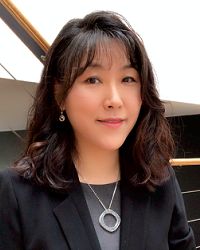
Ah-Hyung (Alissa) Park (Columbia University)
(video)
Abstract: In order to meet the ever-increasing global energy demands while stabilizing the atmospheric CO2 level, the development of carbon capture, utilization, and storage (CCUS) technologies is one of the critical needs. In particular, there have been significant efforts to develop CO2 capture solvents and some (e.g., amine-based aqueous solvents) have shown very promising results. Unfortunately, the energy requirement for the current aqueous solvent systems is still considered to be too high. Thus, efforts have been focused on the development of the next generation CO2 capture materials, which are often water-free. Nanoparticle Organic Hybrid Materials (NOHMs) are a new class of organic-inorganic hybrids that consist of a hard nanoparticle core functionalized with a molecular organic corona that possesses a high degree of chemical and physical tunability. It has recently been discovered that NOHMs have interesting electrolyte properties which may allow the CO2 capture to be pulled by the in-situ CO2 conversion reactions. The development of these unique nanoscale hybrid materials will not only advance CO2 capture materials design but also introduce unique research opportunities in various energy and environmental fields. This seminar will discuss the challenges and opportunities of different CO2 capture and conversion pathways including Negative Emission Technologies (e.g., Direct Air Capture) that can allow the development of circular carbon and hydrogen economy using renewable energy.
Bio: Ah-Hyung (Alissa) Park is the Lenfest Earth Institute Professor of Climate Change in the Departments of Earth and Environmental Engineering & Chemical Engineering at Columbia University. She is also the Director of the Lenfest Center for Sustainable Energy at the Earth Institute, Columbia Climate School. Her research focuses on sustainable energy and materials conversion pathways with emphasis on integrated Carbon Capture, Utilization, and Storage (CCUS) technologies addressing climate change. Park group is also working on Direct Air Capture of CO2 and Negative Emission Technologies including BioEnergy with Carbon Capture and Storage (BECCS) and sustainable construction materials with low carbon intensity. Park received a number of professional awards and honors including ACS ENFL Mid-Career Researcher Award (2022), U.S. C3E Research Award (2018), PSRI Lectureship Award at AIChE (2018), ACS Energy and Fuels Division – Emerging Researcher Award (2018), ACS WCC Rising Star Award (2017), and NSF CAREER Award (2009). Park also led a number of global and national discussions on CCUS including the Mission Innovation Workshop on Carbon Capture, Utilization, and Storage in 2017 and the National Petroleum Council CCUS Report in 2019. Park is a Fellow of the American Institute of Chemical Engineers (AIChE), American Chemical Society (ACS), Royal Society of Chemistry (RSC), and American Association for the Advancement of Science (AAAS).
April 11: Bringing Science to Bear for Climate Solutions and Environmental Justice – A Perspective from the White House Office of Science and Technology Policy
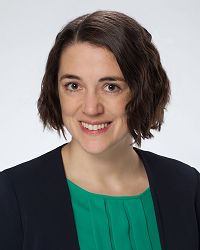
Gretchen Goldman (White House Office of Science and Technology Policy)
(video)
Abstract: Now is a critical time for action to address the climate crisis and the scientific community has a key role to play—not only in advancing scientific understanding of climate change and its impacts, but also in science communication and engagement with communities, stakeholders, and decision makers at all levels. Policy decisions on climate change must be informed by both scientific evidence and robust community input. The impacts of climate change exacerbate existing societal inequities, and climate solutions must ensure that community voices are elevated and environmental justice is delivered to communities across the nation. The Biden administration is employing a whole-of-government approach to advance climate solutions and address environmental injustices. This talk will highlight the ongoing work of the White House Office of Science and Technology Policy and other parts of the US Government to address issues of climate change and environmental justice.
Bio: Gretchen Goldman is currently serving at the White House Office of Science and Technology Policy as the Assistant Director for Environmental Science, Engineering, Policy, and Justice. Dr Goldman is the research director for the Center for Science and Democracy at the Union of Concerned Scientists. For a decade, Dr. Goldman has led research and advocacy efforts at the nexus of science and policy on topics including federal scientific integrity, fossil energy production, climate change, and environmental justice. Dr. Goldman has testified before Congress and sits on the board of the nonprofit 500 Women Scientists. Previously, Dr. Goldman has served as an expert on the Public Health Rulemaking of the California Department of Conservation’s Geologic Energy Management Division (CalGEM), chaired the Air and Climate Public Advisory Committee for the Metropolitan Washington Council of Governments, and served on the UNESCO/AAAS Consultation Group on the US science ecosystem. Her words and voice have appeared in Science, Nature, The New York Times, The Washington Post, CNN, NPR, and the BBC, among other outlets. Dr. Goldman holds a Ph.D. and M.S. in environmental engineering from the Georgia Institute of Technology, and a B.S. in atmospheric science from Cornell University.
April 18: How to Achieve Net Zero Greenhouse Gas Emissions by Midcentury
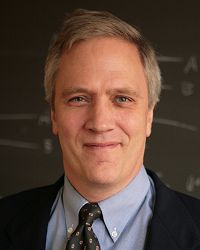
Stephen Pacala (Princeton University)
(video)
Bio: Stephen Pacala is the Frederick D. Petrie Professor in Ecology & Evolutionary Biology at Princeton University. He is interested in the processes that govern ecological communities, the interplay between community and ecosystem-level processes, and the interactions between the global biosphere and climate. His approach is to develop, calibrate and test mathematical models that explain ecological structure and function. His research focuses on all aspects of the global carbon cycle. Over the past several years, his research group has developed methods to scale-up individual-based models of communities and ecosystems. They use these methods to scale up so-called gap models of vegetation. The method provides partial differential equations that govern the behavior of a large-scale simulation model of a landscape, without the need to run the individual-based model. Their global model makes predictions about the large-scale distribution of biomes and associated biogeochemical fluxes, as well as specific local predictions including hourly physiological carbon gain and water loss, community composition and dynamics throughout succession, the outcome of spatial competition among plant species, and the fluxes of nitrogen, water, and carbon.
April 25: Lessons From the Front Line
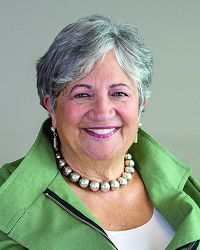
(video)
Mary D. Nichols ’66 is widely recognized for a career as one of the world’s most important environmental regulators. As chair of the California Air and Resources Board (CARB), California’s powerful air pollution and climate regulatory agency from 1975-1982 and then from 2007-2020, she led California’s leading battle to cut smog and carbon emissions. Under Nichols’ leadership, CARB enacted the first comprehensive cap on industrial greenhouse gas emissions by any major regulatory agency in the world. Nichols and CARB also crafted and enforced regulations that slashed air pollution from cars and light trucks by over 99%, paved the way for a new generation of advanced biofuels, and created the roadmap for a transition to a fully electrified transportation system. Nichols now is a professor at UCLA Law School and holds a visiting appointment in the Columbia Global Energy Program. At Cornell Atkinson, she serves as Visiting Senior Fellow and as a member of the Advisory Council. She also serves as the Vice-Chair of the China-California Climate Center and Co-Chair of the Commission on the Future of Mobility.
May 2: Climate Change and Health
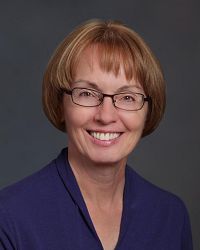
Kristie L. Ebi (University of Washington)
(video)
Abstract: Climate change is altering the mean and variability of weather variables and is causing sea-level rise. Carbon dioxide, the main greenhouse gas driving climate change, also is causing ocean acidification and reducing the nutritional quality of major cereal crops. Future health risks will be determined by the interaction of the hazards created by a changing climate with the populations and regions exposed to those changes, and the sensitivity and capacity of those so exposed to prepare for and effectively manage changes in the magnitude and pattern of exposure. That is, interactions between climate change and demographic, socioeconomic, and other changes will determine the burden of climate-sensitive health outcomes. Key climate change-related risks include deaths and injuries from extreme events (e.g., heat waves, storms, and floods). Indirect effects include increased risks of infectious diseases (including food-, water-, and vector-borne), food insecurity and malnutrition, and diffuse health impacts from loss of livelihoods and conflicts over resources and migration. Most risks are projected to increase with each additional unit of warming. At higher degrees of warming, thresholds may be crossed that could result in nonlinear responses.
Bio: Dr. Kristie L. Ebi has been conducting research and practice on the health risks of climate variability and change for 25 years. She conducts research to estimate current and future health risks of climate change; design adaptation policies and measures to reduce risks in multi-stressor environments; and estimate the health co-benefits of mitigation policies. She has been an author on multiple national and international climate change assessments, including the fourth U.S. National Climate Assessment and the IPCC 6th Assessment Report.
May 9: How Waste Became ‘Renewable’ in Baltimore – A Cautionary Tale
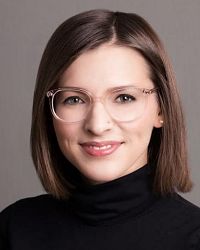
Chloe Ahmann (Cornell University Department of Anthropology)
(video)
Abstract: How do people in post-industrial landscapes relate to the future once trajectories like progress reveal themselves to be untenable? What might their experiments in hoping at the end of things teach us about dreaming big in the face of ecological apocalypse? This talk takes up these questions from the vantage point of South Baltimore City, following debates among neighbors over a proposed incinerator. Some worried the plant would solidify their neighborhood’s position as a “dumping ground,” while others thought it might revive them from an economic slump. For a time, the proposal laid bare categorical disagreements about what residents could reasonably desire from within the haze kicked up by an aging industrial order. Exploring two takes on the notion of what constitutes a “reasonable desire” and the future orientations that structure each, my research explores both the imaginative limits to achieving something like a just transition and the hard work it takes to stretch the boundaries of the possible. In this talk, in particular, I unfold a cautionary tale about the lure of techno-fixes by examining why some considered the incinerator to be a “renewable” technology. For those interested in learning more, the optional reading centers on a youth-led campaign to block the construction of this plant, showing how this group used the incinerator as an opening into two centuries of local history and the fight against it as an opportunity to practice “prefigurative” politics.
Bio: Chloe Ahmann is an Assistant Professor in the Department of Anthropology at Cornell. Chloe is an environmental anthropologist studying the long afterlife of American industry. Chloe’s work is based in Baltimore, following industrialism’s enduring traces in toxified landscapes, patchy regulation, quotidian expressions of white supremacy, and particular orientations toward time. The work considers what efforts to think and enact environmental futures look like from the sedimented space of late industrialism. Chloe is also beginning work on ecofascist sentiments in the United States, and the dark utopian visions that sustain them. For the latest research, see “Breathing Late Industrialism,” a thematic collection I co-edited for Engaging Science, Technology, and Society with Alison Kenner, and “Unbelonging: The Politics of Address,” recently out with Anthropological Theory Commons. Come Spring 2022, a special issue I edited on “Vacancy” will be published at Anthropological Quarterly.
February 15: Anthropogenic Climate Change Has Slowed Global Agricultural Productivity Growth
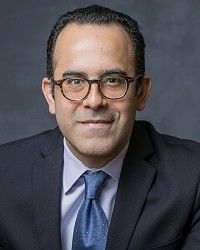
Ariel Ortiz-Bobea (Dyson School, Cornell University)
(video)
Agricultural research has fostered productivity growth, but the historical influence of anthropogenic climate change on that growth has not been quantified. We develop a robust econometric model of weather effects on global agricultural total factor productivity (TFP) and combine this model with counterfactual climate scenarios to evaluate impacts of past climate trends on TFP. Our baseline model indicates that anthropogenic climate change has reduced global agricultural TFP by about 21% since 1961, a slowdown that is equivalent to losing the last 7 years of productivity growth. The effect is substantially more severe (a reduction of ~26-34%) in warmer regions such as Africa and Latin America and the Caribbean. We also find that global agriculture has grown more vulnerable to ongoing climate change.
February 22: Carbon Dioxide Removal: Enhanced Weathering As a Billion Ton Solution?
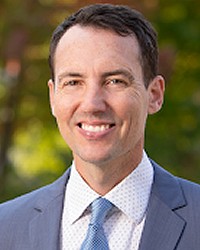
Benjamin Z. Houlton (The Ronald P. Lynch Dean of the College of Agriculture and Life Sciences)
(video)
Holding Earth’s climate to no more than 1.5 degrees Celsius of modern global warming is critical for food and national security, economic growth, infrastructure, and human health, welfare and justice on a worldwide scale. Although disagreement exists over the right mix of solutions, scenarios highlight that various combinations GHG emissions reductions (decarbonization of manufacturing, energy systems and transportation) and carbon dioxide removal technologies will be needed to meet the 1.5 degree C target in the 21st century. Here I discuss the role of enhanced weathering – the purposeful introduction of volcanic rock fines into agricultural soil – as a carbon dioxide removal strategy, with co-benefits for soil health, fertilizer use efficiency, and improved crop quality and yields. I focus on both the state of the science and issues and opportunities surrounding enhanced weathering as a billion-ton carbon dioxide removal strategy. I also present first year results from our large-scale demonstration project, known as the Working Lands Innovation Center, which is leveraging public-private-academic partnerships to examine the efficacy of enhanced weathering, biochar and manure-compost amendments across ~100 acres of cropland (corn, alfalfa, orchards) and managed rangeland soil in California.
March 1: Angry Weather – Identifying to What Extent Climate Change is Taking Its Toll
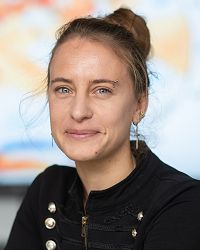
Friederike Otto (University of Oxford)
(video)
Some consequences of a warming world, namely an increased likelihood of more heat and high precipitation extremes, have been known and predicted for a long time and are now seen across the globe. However, these consequences only hold on large scales and can be counteracted or amplified regionally (smaller scales) by changes in the atmospheric circulation – where and how weather systems develop – also due to human-induced climate change.
To understand how the risks of local extreme events are changing requires a holistic perspective combining these effects. Recent advances in the emerging science of event attribution provide the necessary basis on which to build the tools needed to assess such risks at the spatial scales people care most about. These attribution studies are starting to become the basis for legal claims, loss and damages assessments and social mobilisation.
March 8: Climate, People, and Forests in the Heart of India
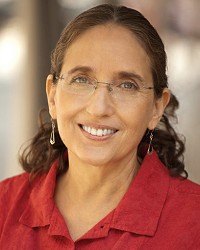
Ruth DeFries (Columbia University)
(video)
Abstract: Climate is a wicked problem that requires understanding of people and places. Three stories from the forested areas of central India illustrate that efforts to mitigate and adapt to climate change might be most successful if approached from the lens of local livelihoods and well-being: restoration of degraded forests; climate resilient and low-GHG cereal production; and migration between rural and urban areas. The stories identify the potential for climate solutions from interventions aimed at improved nutrition and living standards.
Bio: Ruth DeFries is a professor of ecology and sustainable development at Columbia University in New York. She uses images from satellites and field surveys to examine how the world’s demands for food and other resources are changing land use throughout the tropics. Her research quantifies how these land use changes affect climate, biodiversity and other ecosystem services, as well as human development. She has also developed innovate education programs in sustainable development. DeFries was elected as a member of the U.S. National Academy of Sciences, one of the country’s highest scientific honors, received a MacArthur “genius” award, and is the recipient of many other honors for her scientific research. In addition to over 100 scientific papers, she is committed to communicating the nuances and complexities of sustainable development to popular audiences through her books “The Big Ratchet: How Humanity Thrives in the Face of Natural Crisis ” and “What Would Nature Do?: A Guide for Our Uncertain Times.”
March 15: The Role of Social Capital in Community Resilience to Climate Change
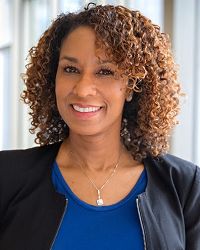
Shorna Broussard Allred (Natural Resources and Environment, Cornell University)
(video)
Bio: Shorna Allred is an Associate Professor and Associate Director of the Center for Conservation Social Sciences at Cornell University with a joint faculty appointment in the Dept. of Natural Resources and the Environment and Dept. of Global Development. A conservation social scientist, her research examines conservation behavior, community resilience, and environmental justice. She also holds an appointment with the Southeast Asia Program and is a Visiting Professor at Universiti Malaysia Sarawak.
March 22: Racial Justice and the Impacts of Climate Change Through the Lens of Media Literacy
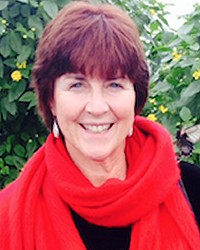
Cyndy Scheibe (Ithaca College)
(video)
How can we understand two of the most critical issues of our time – racial justice and climate change, and the connections between them – during an “infodemic” of misinformation, disinformation and news spin? Media literacy provides a powerful context for deep conversations about the messages we see, hear and read. Focusing on the impacts and protests related to Black Lives Matter and climate change, we’ll use constructivist media decoding to collectively explore how we know what we know and how our own biases influence the ways in which we seek out, interpret and share information about the issues that matter most in our lives.
March 29: Transitioning to a Resilient Low-carbon Economy: How Addressing Climate Change is Being Integrated Into Core Business and Investing in the Private Sector
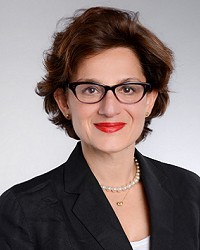
Maryam Golnaraghi (The Geneva Association)
(video)
Despite over two and a half decades of coordinated international negotiations on climate change, the dialogue, only recently, the focus of the climate change debate has moved from being mainly a scientific, environmental and social responsibility issue to one of the core drivers of socio-economic development and risk management. There is now widespread global recognition of climate change science and the associated socio-economic impacts as set out by the United Nations Intergovernmental Panel on Climate Change (IPCC). To reach climate change goals as set by the Paris Agreement (United Nations 2015), and pivot away from fossil fuel dependence, policy advisors are outlining the need for dramatic changes in business models in different economic sectors and profound changes needed in everyday life impacting core and essential sectors of the world economy. However, while governments have submitted their Nationally Determined Contributions (NDCs) to mitigate the impacts of climate change, the development of public policies for an orderly transition to a resilient low carbon future has been stubbornly slow. An orderly transition requires coordinated efforts and scale. A disorderly (unplanned or not-well-planned) transition, could disrupt the global economy, and those who do not steer a course through it and who are left holding devalued investments and assets – whether carbon-intensive or carbon-reliant.
In the absence of clear national policies and strategies for transitioning, since 2016, major initiatives are underway through the financial sector, financial regulators and standard setting bodies to address major hurdles and pave the ways to mobilize mainstream finance to invest at scale in the transitioning (e.g., scaled investing in sustainable infrastructure, large-scale commercialization of green/clean/CCS technologies, green and resilient cities). Courtrooms are becoming the new battlefield for climate activism, with governments and corporations being targeted by a range of litigants in many jurisdictions, using myriad sources of legal duties to push for climate policy and related actions. In fact, since 2015, climate litigation has gained pace, increased in volume, expanded in scope and geographical coverage. This presentation will highlight a number of critical developments that are leading to reform in both private and public systems to enable action at scale:
- Global movement in the private and public sectors to enable access to high-quality, reliable and comparable climate risk information (i.e. physical, transition and litigation risk) from publicly-traded companies, in all sectors, through their annual reporting to inform decision-making and investing – motivated by the Financial Stability Board’s Task Force on Climate-Related Financial Disclosure’s (FSB-TCFD) recommendations.
- Emergence of the field of sustainable finance (e.g. EU, Canada, Australia, Singapore, etc.) to reform the mainstream financial system to enable institutional investors to invest in sustainable new business models and stems with a long-term view
- New emerging financial and insurance regulatory requirements for disclosure and reporting of how companies identify, assess and manage climate change risks and opportunities;
- Actions by international rating agencies (e.g Moody’s, Standard & Poor’, Fitch) to incorporate climate change risk and related management practices in their company, municipal and sovereign credit ratings.
- Growing coalition of institutional investors that are engaging with carbon-intensive sectors, demanding action through shareholder resolutions
- Activities through courts using litigation as a tool to push for more ambitious climate policy and actions by governments and corporates.
April 5: Wildfires and Global Climate Change
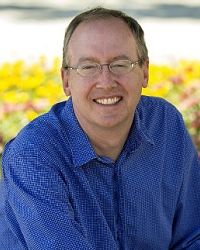
James Randerson (University of California, Irvine)
(video)
Bio: James Randerson studies the global carbon cycle and the role of fires in the Earth System. In his work, he combines satellite observations with climate models to explore changes in the biosphere. Randerson was born in Fairfax, Virginia and grew up in San Diego, California, where he attended Point Loma High School. He received a BS in chemistry (1992) and a PhD in biological sciences (1998) from Stanford University. He conducted postdoctoral work at UC Berkeley and University of Alaska before joining the faculty at Caltech. In 2003, Randerson moved to UC Irvine where he now holds the position of Ralph J. and Carol M. Cicerone Professor of Earth System Science. Randerson was the recipient of the James B. Macelwane Medal in 2005 and the Piers J. Sellers Global Environmental Change Mid-Career Award in 2017 from the American Geophysical Union. Randerson served as co-chair of the biogeochemistry working group of the Community Earth System Model from 2003-2017 and is currently a member of the Biological and Environmental Research Federal Advisory Committee for the U.S. Dept. of Energy Office of Science. He is a Fellow of the American Geophysical Union and a member of the US National Academy of Sciences.
April 12: Reducing Agricultural Methane From Livestock While Farmers Thrive: Thoughts From Experience in New Zealand
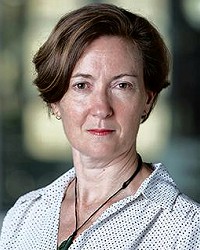
Suzi Kerr (Environmental Defense Fund)
(video)
Bio: Suzi Kerr is the Chief Economist at Environmental Defense Fund. She was, until May 2019, a Senior Fellow, and from 1998 – 2009 Founding Director, at Motu Research in New Zealand. She graduated from Harvard University in 1995 with a PhD in Economics. She has also worked at the University of Maryland at College Park, Resources for the Future (USA), and the Joint Center for the Science and Policy of Global Change at MIT. She was a Visiting Professor at Stanford University for the 2009/10 year, and at the University of the Andes in Bogotá, Colombia in the first half of 2014. In 2018, she was President of the Australasian Agricultural and Resource Economics Society. Her research work focuses on domestic and international climate-change mitigation policy with special emphasis on emissions pricing and land use. She is the leader of the international ‘Climate Teams’ initiative. She is a member of the Advisory Boards for the Climate Econometrics group at Oxford and the International Emissions Trading Association ‘Markets for Natural Climate Solutions’ initiative.
April 19: How Combination and Sequence of Weather Events Shape Mexico-U.S. Migration Flows
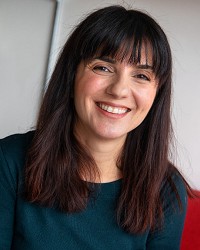
Filiz Garip (Princeton University)
(video)
Existing work presents mixed findings on the impact of weather events on international mobility. Relying on fine-grained data over a long time span (1980-2019) in the Mexico-U.S. setting, we turn to machine learning (ML) tools to first determine if weather events can predict migration choices of 150,000+ individuals. We use random-forest models which allow us to include a comprehensive list of weather indicators measured at various lags, and to consider complex interactions among the inputs. These models rely on data-driven model selection, optimize predictive performance, but often produce ‘black-box’ results. In our case, the results show that weather indicators offer at best a modest improvement in migration predictions. We then attempt to open the black box and model the linkages between select weather indicators and migration choices. We find the combination of precipitation and temperature extremes and their particular sequencing to be crucial to predicting weather-driven migration responses out of Mexico. We also show heterogeneity in these responses by household wealth status. Specifically, we find that wealthier households in rural communities migrate in the immediate aftermath of a negative weather shock (relative to the ‘normal’ weather in their community), while poorer households need to experience a positive weather event following a negative one in order to migrate to the United States. This pattern suggests that migration as an adaptation strategy might be available to select households in the developing world, and the most vulnerable might be excluded from resorting on an international trip unless they experience particular sequences of weather events that allow them to raise the necessary funds first.
May 3: Grounding Perspectives on Ice Loss in Antarctica
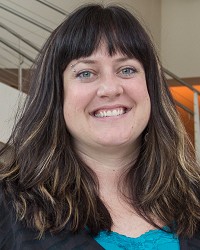
Britney Schmidt (Cornell University EAS)
(video)
Bio: Britney Schmidt’s primary interest is floating ice systems—Jupiter’s moon Europa and Earth’s ice shelves. She is interested in how these environments work and how they may become habitable. She has chosen to focus on Europa because of its potential to have what other places may not have: a stable source of energy from tides that can power geological cycles over the lifetime of the solar system. At its most basic form, life is like a battery, depending upon redox reactions to move electrons. A planetary proxy for this is activity, whereby a planet recycles through geologic processes, and maintains chemical gradients of which life can take advantage. Without recycling, it is possible that even once habitable environments can become inhospitable. This is where terrestrial process analogs come into the picture—by studying how ice and water interact in environments on Earth we can better understand the surface indications of such on Europa (and other icy worlds). Britney’s work provides a framework by which to remotely understand planetary cryospheres and test hypotheses, until such time as subsurface characterization becomes possible by radar sounding, landed seismology, or one day, roving submersibles.
Much work remains to correlate observations and models of terrestrial icy environments—excellent process analogs for the icy satellites—with planetary observations. Britney thinks about how to incorporate melting, hydrofracture, hydraulic flow, and now brine infiltration as process analogs into constructing models for the formation of Europa’s geologic terrain and to study the implications for ice shell recycling and ice-ocean interactions. The inclusion of realistic analogs in our backyard–Earth’s poles –using imaging and geophysical techniques is a common thread of this work, giving tangible ways to generate and test hypotheses relevant to environments on Earth and Europa.
In the long term, Britney envisions constructing systems-science level models of the Europan environment to understand its habitability and enable future exploration.
May 10: Estimating Vector-borne Disease Transmission in a Human-modified World
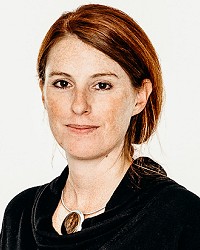
Courtney Murdock (Entomology, Cornell University)
(video)
Climate change will alter the distribution and intensity of transmission of vector-borne diseases, potentially increasing the probability of disease emergence and threatening the fragile gains current control programs have made in combatting these diseases. Approximately 400,000 deaths occurred due to malaria in 2018 alone, despite intense effort to control transmission over the past two decades. Additionally, currently half of the world’s population is at risk for contracting mosquito-transmitted viruses, with 390 million dengue infections per year. Further, many diseases that have recently emerged or are re-emerging globally are mosquito-borne. It has been well established that temperature has non-linear effects on vector-borne disease transmission. Thus, the effects of climate change on disease transmission will likely differ across regions. This seminar will explore the mechanisms that generate complex effects of temperature on mosquito-borne disease in the malaria and arbovirus systems and will discuss implications for transmission of these diseases in a changing climate.
February 3: Species Interactions and the Challenge of Predicting Ecological Responses to Climate Change
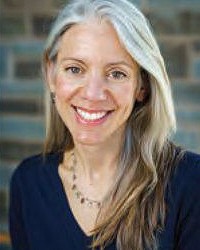
Amanda Rodewald (Natural Resources and Lab of Ornithology)
(video)
Impressive advances in our ability to forecast changes in the Earth’s climate have not translated to similarly robust capacity to anticipate responses of individual species and ecological communities. Communities are assemblages of multiple species that interact directly or indirectly, and the response of one species to environmental change may depend upon responses of the other species with which it interacts. For example, a flowering plant that is exclusively pollinated by one bee species will be unable to track changes in climate if its pollinator cannot. In other cases, entire communities might collapse in the absence of certain species that are disproportionately important (e.g., keystone species). Dr. Rodewald will discuss how predicting future communities remains a challenging and complex endeavor that demands a more thorough understanding of species interactions.
February 10: The Challenges of Meat and Media in Brazil: Decoding Manifestations of Climate Skepticism
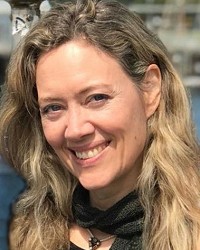
Myanna Lahsen (Wageningen University, The Netherlands, and INPE, Brazil)
(video)
Recent analyses of Brazil’s mass media coverage of climate change have found it relatively devoid of climate skepticism and more “advanced” compared to more “advanced” societies, such as the United States, responsible for generating a high and striking level of climate change concern. Through a focus on resource depletion and global environmental change generated by agricultural expansion in Brazil, I examine the extent to which Brazilian research and mass communications structures contribute to the challenge of communicating and addressing them. I argue that current scholarly analyses fail to perceive the nationally particular expressions and foci of anti-environmental forces and how these forces limit the country’s environmental policy and politics.
February 17: Catalyzing Action in the Climate-adaptive Design Studio
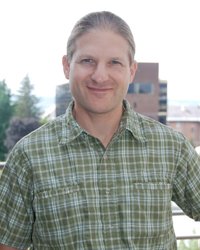
Josh Cerra (Landscape Architecture)
(video)
Bio: Associate Professor Cerra has practiced as a designer and ecologist for over 25 years combined. His work investigates relationships between urban ecosystems, communities and site development processes, and their implications for climate-adaptive design and urban ecological design.
March 2: Ithaca’s Green New Deal – Opportunities and Challenges
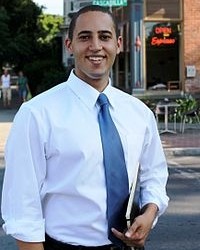
Svante L. Myrick (Ithaca Mayor)
(video)
Bio: Svante L. Myrick was sworn into office in January 2012 and became, at 24, the City of Ithaca’s youngest Mayor and first Mayor of color. Svante was first elected to the Common Council at the age of 20 while still a junior at Cornell University.
March 9: What Is New in the Recent Oceans, Land, and 1.5C Special Reports From IPCC?
Natalie Mahowald (Earth and Atmospheric Sciences)
(video)
Bio: Professor Mahowald has undergraduate degrees in German and physics from Washington University, an M.S. in natural resource policy from the University of Michigan, and a Ph.D. in meteorology from Massachusetts Institute of Technology. Mahowald conducted her postdoctoral research at Stockholm University in Sweden prior to holding a faculty position at the University of California, Santa Barbara from 1998-2002. She then spent five years as a scientist at the National Center for Atmospheric Research (NCAR) before joining Cornell as a faculty member in 2007.
April 6: Transforming Carbon From a Pollutant to a Resource
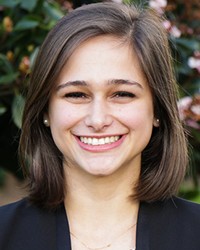
(video)
Bio: Giana Amador is the cofounder and Managing Director at Carbon180. At the organization, she wears many hats — from guiding the team’s strategy and communications to more recently, building out the organization’s agriculture policy program. In all of her work, Giana is focused on connecting economic development, social justice, and climate action. Her past research focused on the political economy of climate change, with an emphasis on green industrial policy and coalition building.
April 13: Carbon in the Built Environment

(video)
Bio: Katharina Kral is a German architect with a focus on housing and material specific construction topics in the fields of timber and concrete construction. During five years at Buchner Bründler Architekten in Basel, Switzerland, where she led design and construction projects, Kral acquired a holistic understanding of the complex processes of building. Her most recently finished project is a large residential complex in Zurich, Switzerland, that features one of the largest, entirely wooden facades that has been built up to that point.
April 20: Tropical Land Use, Carbon Emissions, and Indonesia’s Oil Palm Explosion
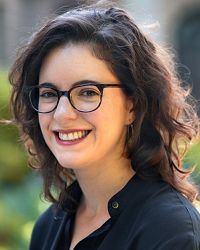
Jenny Goldstein (Global Development)
(video)
Bio: Jenny’s work is driven by interests in environmental conservation and development in the tropics; intersections of data infrastructure and land governance; human health impacts of ecological change; global food and agriculture systems; the financialization of land; and the role of scientific knowledge in climate change politics.
April 27: What Can We Do to Save Coral Reefs When It’s Too Damn Hot Already?
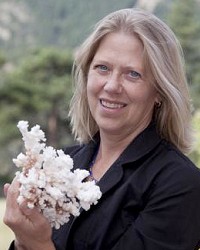
Joanie Kleypas (National Center Atmospheric Research)
(video)
Bio: Joanie Kleypas is a marine ecologist/geologist that focuses on how coral reefs and other marine ecosystems are affected by changes in the Earth’s atmosphere and climate. Global warming, for example, is causing tropical ocean temperatures to increase faster than corals can adapt, resulting in high rates of coral bleaching. This is one of the major causes of the present, rapid degradation of coral reef ecosystems. Ocean acidification is another major threat to coral reefs, because as the oceans absorb much of the CO2 released to the atmosphere by fossil fuel burning and deforestation, seawater pH declines and reduces the ability of corals and many other organisms to build their skeletons and shells.
May 4: Climate Change Policy: Dynamics, Strategy, and the Kyoto Protocol
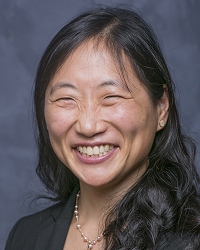
C.-Y. Cynthia Lin Lawell (Applied Economics and Policy)
(video)
Bio: Cynthia is an Associate Professor and the Robert Dyson Sesquicentennial Chair in Environmental, Energy and Resource Economics in the Charles H. Dyson School of Applied Economics and Management at Cornell University. She is an economist with a background in both the natural sciences and the social sciences. She uses a variety of economic and econometric methods in her research, including dynamic structural econometric models, structural econometric models of dynamic games, reduced-form econometrics, spatial econometrics, dynamic programming, and optimal control theory. She is interested in a variety of issues, including those related to energy, the environment, and natural resources. She enjoys working on projects that are technically sound, innovative, challenging, and that are of interest to academics, business practitioners, and policy-makers alike.
May 11: On Planetary Health: Achieving Joint Food and Environmental Security in a Climate, Changed

Sonali McDermid (New York University)
(video)
Bio: Sonali McDermid is Assistant Professor of Environmental Studies. She holds a Ph.D. (2011), and M. Phil. (2011) and an M.A. (2009) from the Dept. of Earth and Environmental Sciences at Columbia University, specializing in Atmospheric Science and Climatology. She holds a B.A. in Physics from NYU (2006). McDermid’s research focuses on understanding interactions between climate change and variability, land-use, and agriculture, with an eye towards identifying and quantifying important feedbacks and uncertainties. To this end, she uses a variety of tools and datasets, including global climate and earth system models, process-based crop models, and observed datasets.
February 4: What’s New in the UN’s Special Report on 1.5C Warming?
Natalie Mahowald (Earth & Atmospheric Sciences)
(video)
The recent report from the United Nations’ Intergovernmental Panel on Climate Change (IPCC) shows that human activities have already caused 1.0C global warming, but that past emissions alone do not cause a warming of 1.5C. This report addresses the emission reductions required to keep warming below 1.5C, what the climate impacts would be of achieving 1.5 vs. 2C and what these imply for adaptation requirements. An important part of the report is evaluating the synergies and tradeoffs between clim ate mitigation, adaptation, eradication of poverty and sustainable development. Ambitious and unprecedented changes in behavior and transitions across many sectors, including energy and agriculture, are required, in addition to the research, development a nd deployment of carbon dioxide removal technologies.
February 11: The Social Value of Mitigation Activities
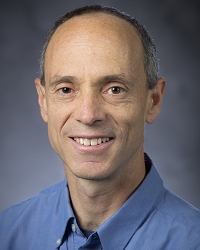
Drew Shindell (Nicholas School of the Environment, Duke University)
(video)
The Paris Agreement recognizes the “social, economic and environmental value of voluntary mitigation actions and their co-benefits for adaptation, health and sustainable development.” Yet strategies to mitigate climate change often do not explicitly consider impacts apart from climate change. A prime example is European policy to encourage use of diesel vehicles in order to mitigate climate change, which led to worsening air pollution. Another example are the scenarios developed in support of climate modeling, which choose economically optimal pathways to achieve climate targets that ignore non-climate impacts. I will discuss research to provide decision-support tools that allow multiple impacts to be assessed, focusing on climate, air quality, and agriculture, and including the economic valuation of these impacts. Results span a range from emission metrics to complex physical and socio-economic models to fit a variety of applications, examples of which will be presented. Such tools enable policy makers to “put a price on the invisible”, thereby tailoring decisions to achieve priority policy goals via regulatory or market interventions.
February 18: Supporting Energy Democracy with Local Carbon Offsets
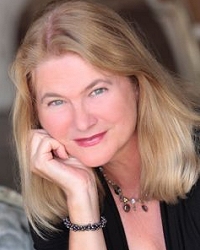
Gay Nicholson (President, Sustainable Tompkins)
(video)
The climate policy battles ahead may take quite a long time to achieve a carbon tax and a redistribution of resources to assure energy democracy. In the meantime, local communities can provide leadership toward including everyone in the transition to a clean energy economy. The Finger Lakes Climate Fund works to promote renewables and energy efficiency projects while strengthening our regional economy and assisting local families in need. Carbon offset donations are used for grants to fund energy improvements that would not otherwise be possible in low to moderate-income households in the Finger Lakes Region. These grants help pay for insulation, air sealing, solar PV, energy efficient heating and cooling, and other upgrades to reduce energy use and greenhouse gas emissions.
March 4: Climate and Land-Use Change

Johanne Pelletier (Atkinson Center/TNC NatureNet Fellow, Cornell University)
(video)
Land-use change, especially deforestation in the tropics, is one of the major sources of greenhouse gas emissions. Net CO2 emissions from land-use change were on average equivalent to 1.5±0.7 GtC (5.3±2.6 GtCO2) during 2008-2017, accounting for about 12% of all emissions from human activity. Forests and soils also play a major role as carbon sink and reservoir. Impetus to curb deforestation has led to the mobilization of international efforts around a new mechanism under the United Nations Framework Convention on Climate Change (UNFCCC) to reduce emissions from deforestation and forest degradation in developing countries (REDD+) and increase absorptions by forests. This line of action to mitigate climate change is attractive for multiple reasons, including for the co-benefits that standing forests can provide and because these mitigation actions can have an immediate impact on our climate. Focusing mainly on three case study countries, including Panama, Democratic Republic of Congo and Zambia, I will show that various methodological and social characteristics complicate the successful implementation of these mitigation strategies. Emission and absorption estimates from forests and land management have large uncertainty compared to other sectors of activities. This matters especially in a context where countries would receive result-based payments for reducing deforestation. Drivers of deforestation are often difficult to address and vary in space and time, and governments in developing countries do not always have the capacity and/or the interest to address those drivers. Furthermore, there are real risks for undermining the livelihoods of forest dependent people in REDD+ participating countries. Nonetheless, there are examples of countries that have been successful at reducing deforestation. Forests and land management will necessarily play an essential role in climate change mitigation for achieving the ultimate goal of the Convention on Climate Change and the Paris Agreement.
March 11: Climate Change in Court
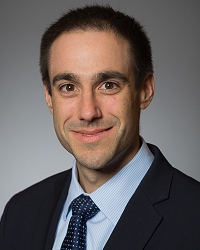
Zach Clopton (Law School, Cornell University)
(video)
In many ways, lawsuits are a poor fit for the problem of global climate change. Proving individual harms from climate change is scientifically difficult. Even if one could prove that they had been harmed by climate change, it is not obvious whom they should sue. And even if they knew whom to sue, it is not obvious what law had been broken. But in the face of a federal government seemingly uninterested in addressing climate change, those committed to action on climate have turned to courts. To do so, they have developed creative theories of legal wrongs, and often they have turned to unexpected plaintiffs to serve as the faces of those lawsuits. Cities and states in particular have taken on a leading role. This seminar will review these efforts and critically examine the role of courts and litigation in ongoing efforts to fight global climate change. It also will explore what these efforts reveal about the American system of government and its capacity to respond to pressing global problems.
March 18: Property Taxes, Fiscal Policy, and Climate Change: Why We’re Doomed to Keep Building Where We Shouldn’t and What to Do About It
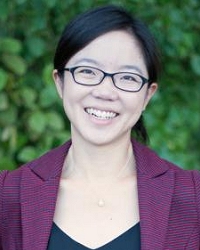
Linda Shi (City and Regional Planning, Cornell University)
(video)
Climate change presents a massive challenge for cities because their built assets, boundaries, revenue streams, and operating costs are fixed, while the landscape of land suitable for human settlement undergoes permanent change. Much of public discourse decries poor (even corrupt) political choices in land use planning on the one hand, and contends with the trauma of retreat or resettlement after disasters on the other. Yet, all our institutional structures – fiscal, legal, and infrastructural – are predicated on cities maximizing land value and this fundamental reality remains unchanged despite new information about climate risks. In this seminar, I’ll explain the policy context that shapes the (lack of) land use planning that accounts for natural hazards, the implications this has for cities moving forward, and how we’re seeing cities respond to these changes on the ground. The seminar invites conversation around the scale and scope of changing core structural policies to support long-term, fundamental societal adaptation.
March 25: 20th and 21st Century Climate Change
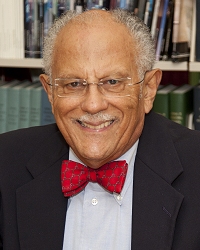
Warren Washington (National Center for Atmospheric Research)
Everyone knows that climate has changed…almost everyone. The most recent Intergovernmental Panel on Climate Change Assessment Report (IPCC AR4) has convinced most climate scientists that humankind is changing the earth’s climate and that significant global warming is taking place because of the burning of fossil fuels. A review of climate modeling development and underlying science will be given along with 20th and 21st century computer simulations. A major societal question is whether renewables and negative emission methods can significantly contribute to reducing future global warming.
April 8: Climate Change, Indigenous Communities, and the Imperative for Action!
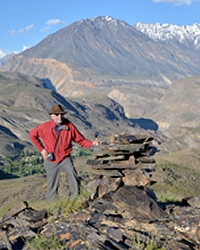
(video)
Indigenous and rural societies who have contributed least to anthropogenic climate change are facing its harshest consequences and for them climate change is one of the greatest challenges. But an estimated 70-80% of the world’s food is produced by the same smallholders with less than two hectares of land. Therefore, climate variability is disrupting food systems and generating a debilitating anxiety. Consequently, anticipatory capacity–the ability to envision possible futures and develop a plan of action to deal with uncertainties–is needed urgently.
April 15: Our Changing Menu: What Climate Change Means to the Foods We Love and Need
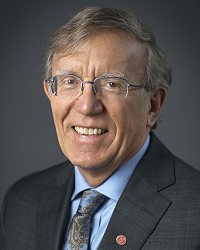
Mike Hoffmann (Cornell Institute for Climate Smart Solutions, Cornell University)
(video)
Human caused climate change is upon us and the evidence is everywhere, including rising sea levels, melting glaciers, more extreme weather events, increasing temperatures, and shifting precipitation patterns. These changes are rapidly making the business of growing the foods we need and love less predictable and riskier. Staples like rice, wheat and corn are becoming less nutritious, salt water intrusion is impacting rice production in Vietnam, the transport of vast amounts of grain through the Panama Canal is becoming more challenging, and extreme weather is compromising vanilla production in Madagascar. Almost everything on our food and beverage menu is changing–some obvious and some subtle and ominous. The challenges that face our local to global food system will be discussed along with solutions, including research and educational efforts underway at Cornell University.
April 22: Building Climate Resilience for Greater US Security
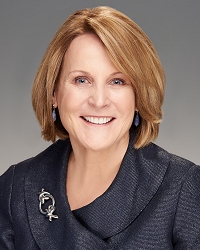
(video)
Climate change affects our infrastructure, economy, public health, and national security. As we recover from extreme weather events and other climate impacts, we must ensure that the infrastructure systems we rely upon will withstand future risks. Climate related disasters can have cascading impacts on multiple sectors and systems, including our public health and economy. Climate change is a “threat multiplier” that can undermine national security. To prepare our communities and build resilience, we must develop a new paradigm that looks beyond just our past experience to determine what will keep us safe in the future.
April 29: What Is the Social Cost of Carbon?
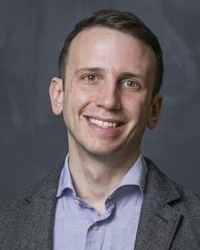
Ivan Rudik (Dyson School of Applied Economics and Management, Cornell University)
(video)
The social cost of carbon (SCC) is the monetized global damage caused by emitting another ton of CO2. Individual estimates have ranged from negative values to hundreds or even thousands of dollars per ton of CO2. In the lecture we will cover three components of how economists calculate the SCC. First, we will broadly cover the structure of integrated assessment models, models of the climate and the economy used to compute the SCC that are linked together by an object called the “damage function.” Second, we will cover in more detail the history and challenges of estimating damages caused by climate change. Last, we will go over the discount rate and the debate about the correct discount rate to use in analysis of climate change. The discount rate translates costs and benefits accruing to future generations into today’s dollars, and is a major determinant of the value of the SCC.
May 6: Theoretical Ecology: A Century of Progress, and Challenges for the Next Century in the Face of Global Change
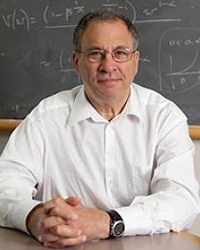
Simon Levin (Ecology and Evolutionary Biology, Princeton University)
(video)
Levin is noted especially for his contributions to the development of the foundations of spatial ecology, for his work on pattern and scale, and more recently for his research at the interface between ecology and economics, especially problems of public goods, common pool resources, and the global commons. His book, Fragile Dominion, along with his subsequent research, weaves these themes together, invoking ecological and evolutionary theory to inform principles for management practice.
January 29: Introduction to the Science of Climate Change
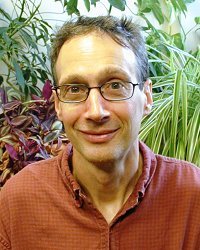
Peter Hess (Biological & Environmental Engineering)
(video)
February 5: Does the United States Need a Climate Refugee Policy?
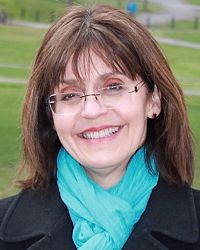
Maria Cristina Garcia (History)
The Internal Displacement Monitoring Center reports that, since 2008, roughly 25 million people have been displaced each year because of sudden-onset disasters such as hurricanes, typhoons, earthquakes, and tsunamis. More difficult to count are those who are displaced by slower-developing environmental crises such as deforestation, erosion, drought and the salinization of fresh water sources. According to some forecasts, unmitigated climate change may result in the displacement of as many as 250 million people by mid-century, many of who will have no choice but to cross international borders in search of refuge. Migration has always been a strategy of survival and adaption. We can expect more migration in response to climate change but the exact numbers are impossible to predict.
What legal protections are available to the so-called “climate refugees”? What are the duties of nations? How does U.S. immigration policy respond to those fleeing environmental crises? Does the United States need a “climate refugee policy”? What might that look like?
February 12: Climate Jihad in Africa: Sea Level Rise, Forced Migration, and Related Turmoil Across the Continent
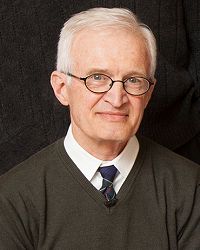
Charles Geisler (Development Sociology)
(video)
Conflict and turmoil in Africa are only partly due to surging population, authoritarian rule, and Islamic Jihadism. Sea level rise and changing weather regimes, underreported in Africa, are resetting the survival stage for the continent’s cities and rural interiors. Adaptation costs may be USD 7-15 billion annually by 2020. Inaction now means exponentially larger adaptation costs by 2100.
February 26: Filling the Vacuum: Global Climate Prospects Following US Withdrawal from the Paris Agreement
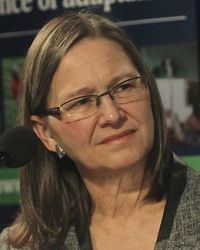
Jennifer A. Haverkamp (Executive in Residence, Atkinson Center)
(video)
While media attention focuses heavily on the United Nations’ Paris Agreement – including the inadequacy of countries’ pledges and the United States’ plans to withdraw – fortunately that is not the only available venue for making climate progress. Internationally, in 2016 world governments reached two other significant agreements: the Montreal Protocol’s Kigali Amendment to phase down HFCs, a potent class of greenhouse gases used for refrigeration and air conditioning, and the UN International Civil Aviation Organization’s CORSIA agreement to limit future emissions from international flights to 2020 levels. What are the prospects for implementing those agreements, and for fulfilling the promise of the Paris Agreement? And how are states, provinces, and cities, as well as the private sector, contributing to the forward momentum so critically needed to avoid dangerous levels of global warming?
March 5: The New Dominance of Renewables in Energy Markets
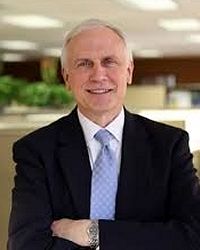
Bruce H. Bailey (Underwriters Laboratory)
(video)
Wind and solar energy now account for the majority of new electricity sources in a growing number of countries, including the US. Thanks to technological innovation and dramatic cost reductions, a “new normal” has emerged that is turning the traditional utility business model on its head. It is accompanied by new energy policy paradigms and is enabling a revolution in battery storage and electric vehicle utilization. This presentation will discuss the fundamental changes occurring in the energy and transportation sectors, how we got here, and what the implications are for the foreseeable future.
March 12: How much climate change is too much? The “Reasons for Concern” about climate change
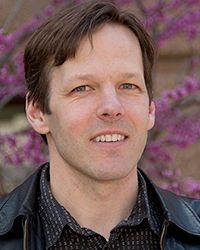
Brian O’Neill (National Center for Atmospheric Research)
(video)
The Reasons for Concern (RFC) framework communicates scientific understanding about risks to society and ecosystems associated with varying levels of global average warming. The framework has been a cornerstone of the reports of the Intergovernmental Panel on Climate Change (IPCC) for more than 15 years and informed the establishment of goals for limiting warming to 1.5 or 2 degrees C in the recent Paris Agreement. I draw on a new review and update of the RFC’s conceptual basis and the risk judgments made in the most recent IPCC report to discuss how well we understand climate-related risks, particularly at the levels of climate change targeted in the Paris Agreement.
March 19: Do We Fully Understand the Challenges and Implications of Climate Change Scenarios?
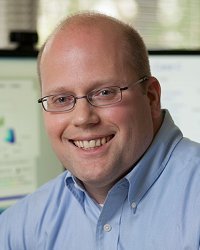
Patrick Reed (Civil & Environmental Engineering)
(video)
Future climate change, societal evolution, and their interaction abound with uncertainties. Reflecting these uncertainties, it critical to carefully consider how we should model potential socio-economic development pathways, the effects of alternative carbon policies, as well as the inherent challenges associated with different climate targets. These elements when explored in combination yield a wide array of climate change futures. Even optimistic scenarios can contain unintended, disproportionate regional or intergenerational impacts. This presentation will share examples of how emerging visualization and data discovery methods can be helpful for better understanding how global change may pose severe challenges across regions or different economic sectors.
March 26: Could Geoengineering Be Part of an Overall Climate Strategy?
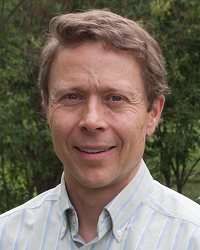
Doug MacMartin (Mechanical & Aerospace Engineering)
(video)
The 2015 Paris agreement set a goal of keeping global mean temperature rise to well below 2C, and ideally below 1.5C, yet the commitments made as part of the agreement are projected to lead to closer to 3C warming. While aggressively reducing our greenhouse gas emissions (“mitigation”) is essential, by itself it will not be sufficient to meet these goals. Carbon dioxide removal (“CDR”), if implemented at sufficient scale, could eventually reduce temperatures, but these ideas remain untested, and there could still be a potentially significant overshoot of temperature targets, with associated climate impacts. Given this context, should we conduct research to understand solar geoengineering? This includes ideas such as adding aerosols to the stratosphere that would reflect some sunlight. Climate model simulations suggest that it is plausible that a limited deployment, if used in addition to mitigation and CDR rather than instead of it, might reduce many climate impacts for most people. However, there are substantial uncertainties in the climate system, as well as substantial challenges for governance.
April 9: Achieving a Carbon Neutral Campus by 2035
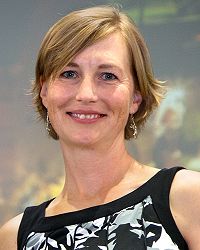
Sarah Zemanick (Campus Sutainability Office)
(video)
Sustainability is a signature area of excellence at Cornell University. Its faculty, students, staff and alumni have a wealth of knowledge, and tapping into their expertise is critical to meeting our ambitious campus carbon goal while providing opportunities to use our campus as a living laboratory to discover and demonstrate new solutions. The choices Cornell makes today to power a carbon-neutral campus tomorrow will involve real costs. These investments would insulate Cornell from unknown future volatility in fossil fuel markets and associated carbon fees. Nevertheless, they must be carefully considered in the context of the University’s need to advance its full academic mission, including the ability to offer the best and most cost-effective education for its students, and the creation of new knowledge that advances society and serves the citizens of New York state. It is a delicate balance. In addition to assessing the single bottom line of proposed solutions, Cornell uses social and environmental impacts, and academic opportunities as a measure of the true impact of University carbon use in Ithaca and beyond.
April 16: How Low Can We Go: What Is Needed to Achieve Low Temperature Climate Targets
Natalie Mahowald (Earth & Atmospheric Sciences)
(video)
Reaching low temperature targets would avoid substantial impacts from climate change, but how low is necessary or possible? Here we discuss some of the important ideas around getting to low temperature targets, what mitigation pathways are available to us at Cornell, in the US and in the world. In addition we discuss the ideas of carbon dioxide removal, as well as the climate justice issues associated with climate change, and climate change mitigation targets.
April 23: What Climate Do We Owe to Our Great-Great-Grandchildren?
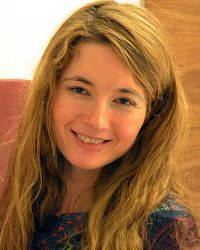
Anja Karnein (Binghamton University)
(video)
It is becoming less and less controversial that we ought to aggressively combat climate change. One main reason for doing so is concern for future generations, as it is they who will be the most seriously affected by it. Surprisingly, none of the more prominent theories of intergenerational justice can explain why it is wrong for the present generation to do very little to stop worsening the problem. I will briefly review discusses three such theories, namely indirect reciprocity, common ownership of the earth and human rights. I show that while the first two are both too undemanding, the latter approach misunderstands the nature of our intergenerational relationships, thereby capturing either too much or too little about what is problematic about climate change. I then propose a way to think about intergenerational justice that avoids the pitfalls of the traditional theories and can explain what is wrong with perpetuating climate change.
May 7: Past and Future Hurricane Activity
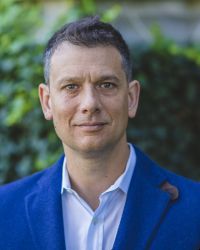
Gabriel Vecchi (Princeton University)
(video)
Tropical cyclones, which are called hurricanes in the Atlantic, are one of the most destructive weather phenomena. This presentation will explore the links between climate and tropical cyclones, with a focus on how hurricanes and tropical cyclones have changed in the past, and what we think they will do in the future.
February 6: Sources of Uncertainty about Future Climate
Natalie Mahowald (Earth & Atmospheric Sciences)
(video)
While the science behind anthropogenic climate change is resolved, a remaining uncertainty is how large the impacts of future climate change will be. Scientists make projections of climate using a variety of tools, one of which is climate models. Here we discuss briefly the advantages and disadvantages of climate models. We discuss conceptually where the uncertainties come from, and the extent to which these uncertainties can be reduced in the future. A focus will be on the state of the science and open questions.
February 13: The Intersection of Social Justice and Climate Justice: Where Social Movements and the Law Collide
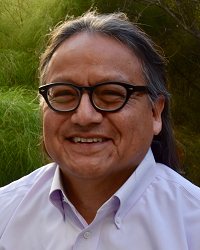
Gerald Torres (Cornell Law School)
(video)
Torres has worked on environmental protection issues, especially related to the public trust and our interest in common resources, for over 30 years. He has studied the impact of climate change on indigenous people and how a failure to act exacerbates problems of environmental injustice. Torres has written about the impact of agricultural policies on environmental quality and the need to take agriculture into account in the protection of our environment. His latest work focused on issues of water scarcity, especially in the face of climate disruption. He served as deputy assistant attorney general for the Environment and Natural Resources Division of the U.S. Department of Justice in Washington, D.C., and served on the boards of the Environmental Law Institute, the National Petroleum Council, EPA’s National Environmental Justice Advisory Council, the Natural Resources Defense Council, and the Texas League of Conservation Voters. He is chair of Earth Day Network.
February 27: Impacts of Global Warming and Ocean Acidification on Ocean Biology
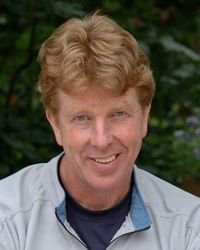
Bruce Monger (Earth & Atmospheric Sciences)
(video)
Rising atmospheric CO2 concentrations threaten global ocean ecosystems through the duel actions of raising ocean temperatures and ocean acidification. The lecture examines a wide range of impacts cause by these twin threats that includes: impacts on coral reefs, shifts in biogeographic provinces of pelagic ecosystems, rapid changes in arctic ecosystems, global expansion of oxygen minimum zones and the broad impacts of ocean acidification. An emphasis will be placed on the speed at which changes are taking place and the need for rapid action to bring CO2 emissions to zero by mid-century
March 6: Rethinking Growth in Light of Climate Change and Inequality
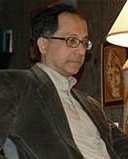
Both to combat climate change and adapt to what may be inevitable, we will need to rethink the concept of what constitutes economic growth and development. It is arguable that climate change will have the largest and most deleterious impact on the poor. This requires us to re-examine the concepts of poverty, inequality and economic growth, which form the basis of so many policy initiatives. The lecture will begin by taking stock of global poverty and inequality, and then speculate the way in which climate change is likely to impact different segments of the population. This will then lead to an analysis of the concept of economic growth and how we may need to rethink this and also re-orient policies to take account of this big challenge of our times.
March 13: Climate (Paleoclimate) and Archaeology/History
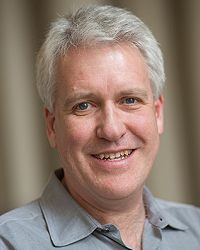
(video)
How does climate history shape human history, and how does this vary when considering longer versus shorter timescales? In particular, what is the relationship beyond a few crisis cases, such a mega-droughts and similar apocalyptic episodes? What about the flip-side: opportunities versus disasters? One of the key issues for a more nuanced integration between climate and humans history is chronology.A lack of good chronological resolution hampers attempts to identify robust linkages between human history and archaeology and climate change for many periods before the recent past. Many claims for climate relevance are based on poorly dated or resolved records, and lack any secure association with human history and its material correlates. Speculation and hypothesis replace tightly constrained evidence associations.
March 20: The Oxymoronic Possibilities of Climate Change Comedy
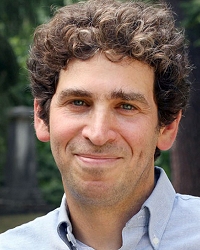
(video)
Virtually all writing and advocacy on climate change has so far been undertaken in a serious, or tragic, or even catastrophic mode. Scientists present warnings that are almost always characterized as “dire.” Book titles suggest that it’s time to write a requiem for our species and often invoke “the end of civilization.” So what would happen if we approached climate change with a sense of humor? Yeah, you’re right. Probably nothing.
March 27: Through the Looking Glass: Global Climate Politics after Paris and Under Trump
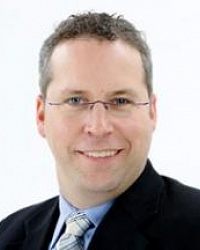
Stacy VanDeveer (UMass Boston)
(video)
The heady, jubilant days that followed the successful negotiations of 2015 Paris Climate Agreement yielded first to the slower, more difficult realities of domestic and international politics and the seemingly unyielding accumulation of scientific data about the changing climate and the need for much deeper cuts in global emissions. But the realities of really-existing politics and science were jolted anew of seeming unreality of election and inauguration of Donald Trump. So why is the Paris Agreement hailed as a success, in the world of global cooperation? And what are the prospects for its implementation – and for the additional actions needed to “ratchet up” climate action under Trump?
April 10: CO2, Climate Change and Food Security
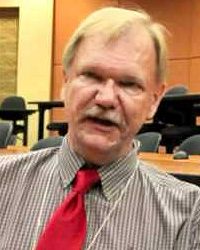
(video)
Documented and projected changes in atmospheric carbon dioxide are likely to alter agricultural productivity in two ways: directly, by supplying additional carbon for photosynthesis and growth, and indirectly by altering climate, specifically surface temperatures and precipitation. In this overview on the impact of carbon dioxide and climate change in agriculture, I will present data from a number of sources that document the likely changes in temperature, temperature and carbon dioxide and water on crop quality and production, and identify other biological interactions with pests, weeds and diseases. In addition, I will discuss adaptation strategies, focusing on exploiting genetic and intra-specific variability within plant germplasm as a possible means to maintain agricultural production in the future.
April 17: Second Coast: A Reflection on Coastal Leisure Landscapes, Climate Adaptation Strategies, and Design Tools

Maria Goula (Landscape Architecture)
(video)
The lecture will briefly provide a genealogy on the coast as a cultural construct, reflecting on the relatively recent desire of humanity to inhabit it for pleasure. Society’s climate change acknowledgment only intensifies earlier concerns of landscape architects and environmentalists on the deterioration and fragmentation of the coast impacted by massive tourism development and privately owned resorts world wide since the 1960’s. Yet, our responses to coastal adaptation are slow and affected by a persistent denial of the coast as a dynamic interphase. In design terms, there is hardly any representation of the coast as a landscape, nor a disciplinary discourse about appropriate scales and tools, to interpret the coastal phenomena in order to provide general diagnosis of the variable tensions that ours coasts are experiencing. The presentation will comment on the some most relevant adaptation experiences strategies in the US and Europe, reflect on their tools and finally share a few design research experiences which under the theme of the second coast aim to reframe our instrumental approach to the coast, as a basis for long term resiliency.
April 24: How do Hurricanes Respond to Climate Change?
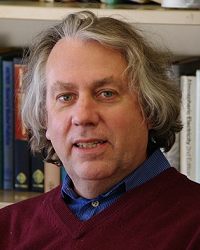
(video)
Hurricanes are sensitive to the Earth’s climate and may also help regulate it. After reviewing observational evidence for how hurricanes are responding to regional and global climate change, I will present an overview of hurricane physics and models and what they have to tell us about the future of hurricane activity as the climate continues to change. Then I will discuss the more recent and controversial idea that hurricanes play an important role in the climate system by drying the atmosphere and by inducing strong lateral heat fluxes in the ocean.
May 1: Communicating Climate Change
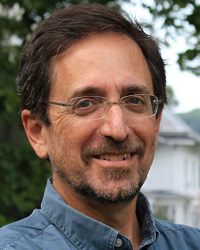
Andrew Revkin (Dot Earth Blog, NYTimes)
(video)
It seems the only thing changing faster than Earth’s environment these days is the communication environment. Mainstream media are shrinking. Global connectivity is exploding. Facts and fantasy flow side by side. Filters and bubbles insulate factions. Andy Revkin, who’s been communicating about climate, energy and sustainable development for more than 30 years describes paths toward progress, most requiring a relentless focus on engagement and innovation.
May 8: Religion and Climate Change
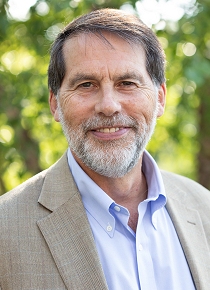
David Lodge (Atkinson Center for a Sustainable Future)
(video)
Religion, especially Christianity, and science have a fraught relationship because of multiple well-publicized historical clashes (e.g.,creation vs. evolution) that shape the current debate in Christian circles about climate change and fuel some climate change deniers. However if science provides a foundation for environmental management, and if religion is one potential motivation for environmentalism, then society would benefit from a détente between religion and ecology. To have integrity and lasting influence, however, a relationship must be based on mutual understanding and respect (and not only on instrumental motivations). I summarize some of the historical tension points between science and Christianity in the US, and identify opportunities for increased intellectual understanding and application.
February 8: Climate Change at the Frontiers of Ethics
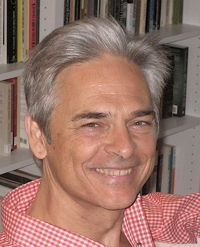
Dale Jamieson (New York University)
(video)
Climate Change encompasses a range of ethical issues such as: abatement, adaptation, geoengineering, compensation, non-human nature, and participatory justice. However, what makes climate change different, and why does it not immediately invoke harsher moral objections from humans?
Dr. Jamieson explores this topic with examples and insights into how human thinking and way of life prevents us from having an extremely adverse reaction to essentially being responsible for the lives and livelihoods of future generations, and how we might circumvent this thinking to overcome the ethical boundary that is climate change.
February 22: The Science and Impacts of Climate Change
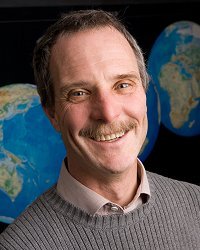
Art DeGaetano (Earth & Atmospheric Sciences)
(video)
So how can adding a bit more of a gas that makes up much less than 1% of the Earth’s atmosphere be responsible for causing the greatest environmental dilemma of our and our future generations’ time? In this talk, I will develop a very simple model of the Earth system. Then using some basic math and physics, show how altering the atmosphere’s greenhouse gas concentration requires that the temperature of the Earth’s surface increase. We will discuss how other man-made influences also affect the climate system and demonstrate how many of these changes are exacerbated by feedbacks.
With this foundation, we will then take a trip back in time to examine how atmospheric carbon dioxide has influenced the Earth’s temperature in the ancient past, how temperatures over the last century, and how continued increases in greenhouse gas concentrations are projected to affect the climate of the next 100 years. We will look at some of these expected changes from both a global and a local prospective.
February 29: Long-term Climate Perspectives, Mega Drought and Seasonal Forecasts
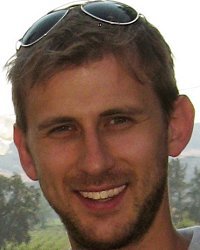
Toby Ault (Earth & Atmospheric Sciences)
(video)
Coping with climate change during this century will require us to build new tools for anticipating “emergent” climate risks–i.e., hazards whose likelihood cannot be easily inferred from the historical record because they are the consequence of both natural climatic variations and climate change. Obvious examples of these kinds of hazards are heat waves, rainfall events, and severe or prolonged droughts. Even when underlying climatic influences are relatively minor however, phenomena with strong ecological or economic consequences can occur. For example, small changes in spring and fall temperatures may have large implications on the growing season. This in turn influences the spread of certain pests and diseases, effecting both agricultural yields and human health. Thus far, Dr. Ault’s research has coalesced around three areas of inquiry related to emergent climate risks: (1) estimating the risk of prolonged drought under climate change; (2) understanding the dynamics of seasonality, particularly spring; and (3) characterizing variations in the Tropical Pacific on timescales of decades to centuries, and their influence on global climate. His methods entail data synthesis from observational sources as well as numerical and statistical modeling. The nature of this work is therefore highly interdisciplinary, affording the opportunity to collaborate closely not only with climate scientists and modelers, but with colleagues in many other disciplines, including geography, paleoclimatology, and ecology.
March 7: Strategies for Mitigating Climate Change – Considering Air Quality and Short Versus Long-lived Greenhouse Gases

Peter Hess (Biological & Environmental Engineering)
(video)
Atmospheric aerosols and a number of greenhouse gases contribute to climate change and have other significant environmental costs including impacts on air quality, agricultural productivity and the ozone hole. The emissions of some of these aerosols and gases are fairly easily controlled while for others mitigation is more difficult. Moreover, some emission controls may decrease global warming but degrade air quality. Mitigation strategies are complicated by the fact that some greenhouse gases effectively reside in the atmosphere for thousands of years while other gases and atmospheric aerosols reside in the atmosphere for a matter of days. This talk seminar will consider different mitigation strategies that take into account the different characteristics of the various greenhouse gases and aerosols.
March 14: The Role of Land Use in Climate Change
Natalie Mahowald (Earth & Atmospheric Sciences)
(video)
https://fellows.atkinson.cornell.edu/view.php?NetID=Most of the effort to control climate change is, correctly, focused on energy policy, because of the huge amount of carbon dioxide potentially emitted by fossil fuels over the next few centuries. In this talk we discuss the additional and complicated role of land use on climate change. In the short and medium-term, fossil fuel and land use contribute to climate change through emissions of green house gases, such as carbon dioxide, methane and nitrous oxide. In addition both energy production and land use and land cover change cause emissions of aerosols, which cool the planet. Changing land from forests to croplands or grasslands can cool the planet, because a change in the albedo. In the longer term, only emissions of carbon dioxide will matter. On longer time scales, land use and land cover change that occurs today reduces the future natural sinks of anthropogenic carbon in forests. Including these effects indicates that on short to longtime scales, per ton of carbon emitted, land use contributes 2x as much warming as energy production. Thus, although energy policy should remain the emphasis in negotiations, land use policies can play an important role in reducing climate change forcing.
March 21: Reflections from the COP21 Climate Talks in Paris
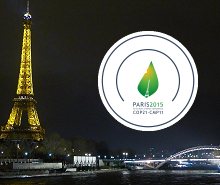
Led by: Allison Chatrchyan (CICCA and Development Sociology), Johannes Lehmann (Soil & Crop Sciences), Louise Buck (Natural Resources), and Sandra Steingraber (Ithaca College Environmental Studies and Science)
(video)
The 21st United Nations Climate Change Conference (COP 21) was held in Paris, France, from November 30 to December 12, 2015. The conference resulted in the Paris Agreement, the first legally binding and universal agreement on climate change, agreed to by representatives of the 196 parties attending. So is the Paris Agreement going to change the world by laying the foundation for global action? Or is it too little, too late, since there are now over 400 ppm CO2 concentration in the atmosphere, and 2015 was the hottest year ever recorded? What were the main issues discussed and agreed to at the conference? And what will it take to get all 196 counties around the world reduce emissions of GHGs? This talk will provide reflections from four Cornell and Ithaca College scientists who were in Paris, including their perspectives on agriculture and land use issues, methane reductions, policy outcomes, and civic engagement and activism.
April 4: Planning Our Water Resources Systems for a Changing Climate
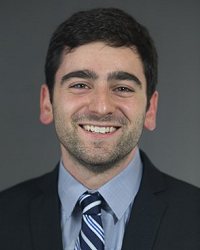
Scott Steinschneider (Biological & Environmental Engineering)
(video)
How should you plan a water system for long-term climate changes when you don’t know what those changes are going to be? This is one of the grand challenges facing water resource planners charged with providing society with one of its most basic needs. Hydrologic systems are arguably one of the most sensitive natural systems to long-term climate change, but projections of driving climate variables (e.g., temperature and precipitation) at spatial scales relevant for these systems are highly uncertain. These uncertainties are further confounded by the diverse array of hydrologic settings that prevail across the globe, with their own histories of infrastructure development and governance, leading to adaptation strategies that are inherently local and thus difficult to generalize. This talk presents a history of emergent strategies to adapt water systems to climate change, with a focus on major theoretical developments and instances of their real-world application. I highlight the importance of other considerations for water systems planning besides climate to contextualize the issue of climate change within the complex web of other challenges faced by resource planners and managers. The talk concludes with some of my own thoughts on ways to move towards a sustainable water future in an ever-changing world.
April 11: Climate Change and Terrestrial Ecosystems
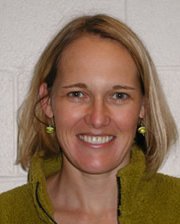
Christine Goodale (Ecology & Evolutionary Biology)
(video)
The terrestrial biosphere currently soaks up a quarter of current fossil fuel emissions of carbon dioxide, thus slowing the rate of climate change. However, multiple processes drive this terrestrial carbon sink, and its future trajectory uncertain: the uptake of CO2 by plant growth may increase in the future as the planet warms and atmospheric CO2 rises, but the availability of water and nutrients can limit that process; meanwhile, warming is likely increase decomposition and the release of CO2 and other greenhouse gases to the atmosphere, possibly turning the terrestrial sink to a net sources of greenhouse gases to the atmosphere. Tropical, temperate, and boreal ecosystems will respond differently as the planet warms, with diverging feedbacks to future climate. This seminar will introduce these key processes governing the response of terrestrial ecosystems to climate change and will explore their likely feedbacks to future climate.
April 18: Climate Change and the Future of Food
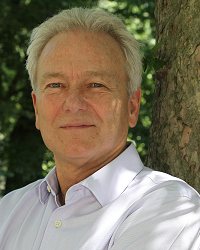
(video)
The climate is always changing, but the pace of change projected for this century is 50 to 100 times faster than recent ice age transitions, and far beyond what prior generations of natural resource and farm managers have had to face. The impacts of climate change on agriculture and food security will not be equitable across regions or socio-economic groups. How do we facilitate farmer adaptation yet avoid unintended negative consequences for the environment? What technologies, information, and decision tools are needed to guide the responses of farmers, researchers, and policy-makers to help ensure food security and sustainable food systems? What incentives and information will be necessary for all participants in the food system—from farmers to consumers—to contribute to greenhouse gas mitigation? Research and outreach priorities to address these issues will be discussed.
April 25: Communicating Climate Change
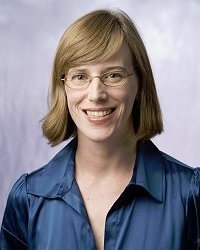
Katherine McComas (Communication)
(video)
Much has been made about the politicization of climate change and the partisan divide in light of scientific evidence. This talk will review some of the seminal findings in communication research that examines public opinion about climate change and some of the explanations for the persistence of a partisan divide. In doing so, it will explore why, in the face of copious amounts of scientific evidence, people still choose to deny its existence and refute any policy action. It will also provide examples of some recent research that examines how even the subtle cues of labeling in climate change communication can influence people’s support for policy.
May 2: A Look at the Evolution of Determining the Impacts of Climate Change through the IPCC
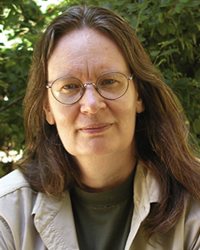
Linda Mearns (National Center for Atmospheric Research, NCAR)
(video)
Linda Mearns is the Director of the Weather and Climate Impacts Assessment Science Program (WCIASP) and Head of the Regional Integrated Sciences Collective (RISC) within the Institute for Mathematics Applied to Geosciences (IMAGe), and Senior Scientist at the National Center for Atmospheric Research, Boulder, Colorado.
May 9: Climate Justice: Economics and Philosophy
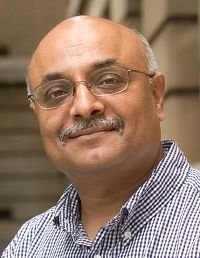
Ravi Kanbur (The Dyson School)
(video)
Climate justice requires sharing the burdens and benefits of climate change and its resolution equitably and fairly. It brings together justice between generations and justice within generations. In particular it requires that attempts to address justice between generations through various interventions designed to curb greenhouse emissions today, do not end up creating injustice in our time by hurting the currently poor and vulnerable. More generally, issues of distribution and justice are of paramount importance in any discourse on climate change. The United Nations Sustainable Development Goals (SDGs) summit in September 2015, and the Conference of Parties (COP) in December 2015, brought together climate change and its economic development impact center stage in global discussions. This talk will bring together economic and philosophical perspectives on climate justice and economic development, previewing a major conference which Cornell will be hosting on May 24-25, 2016.
